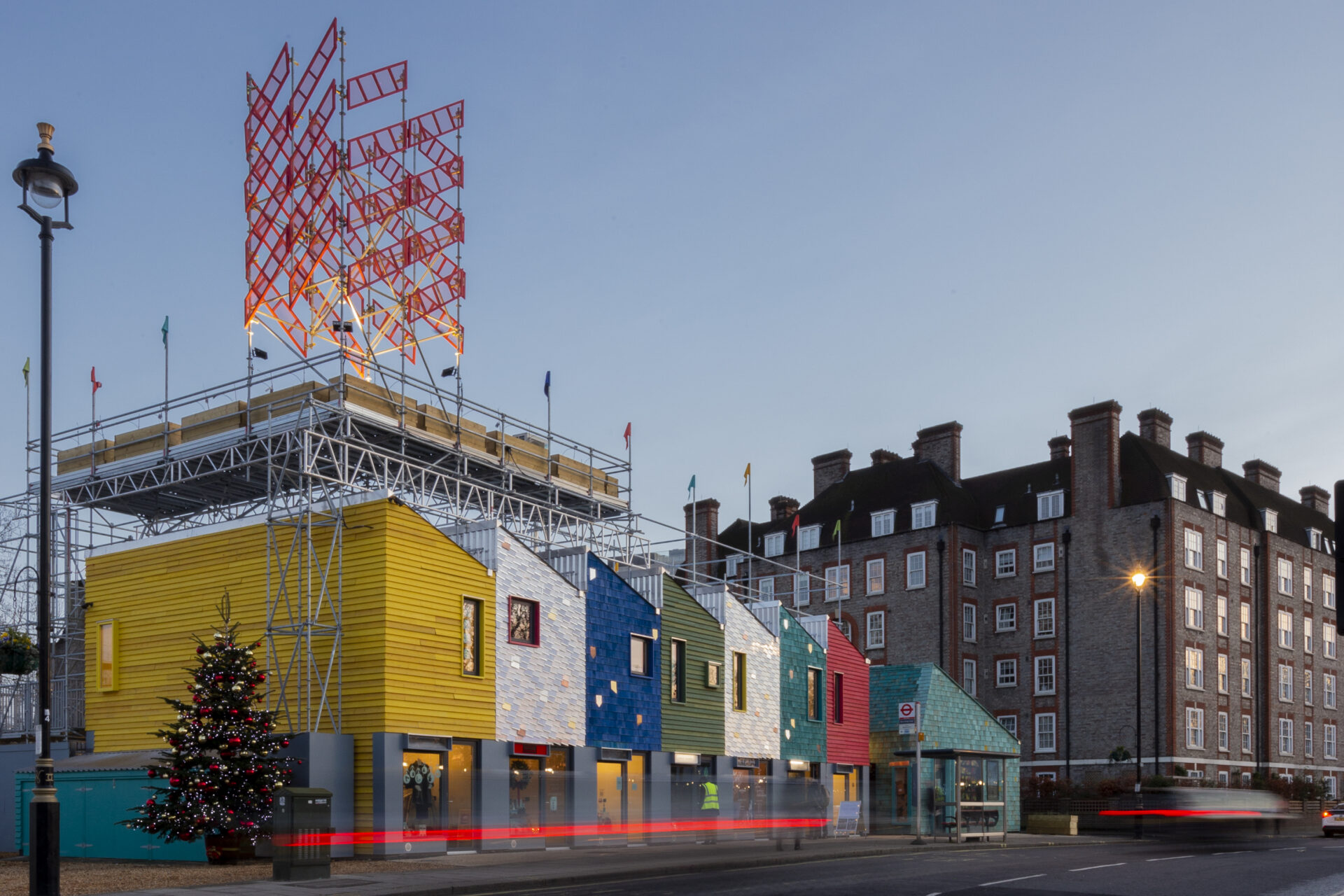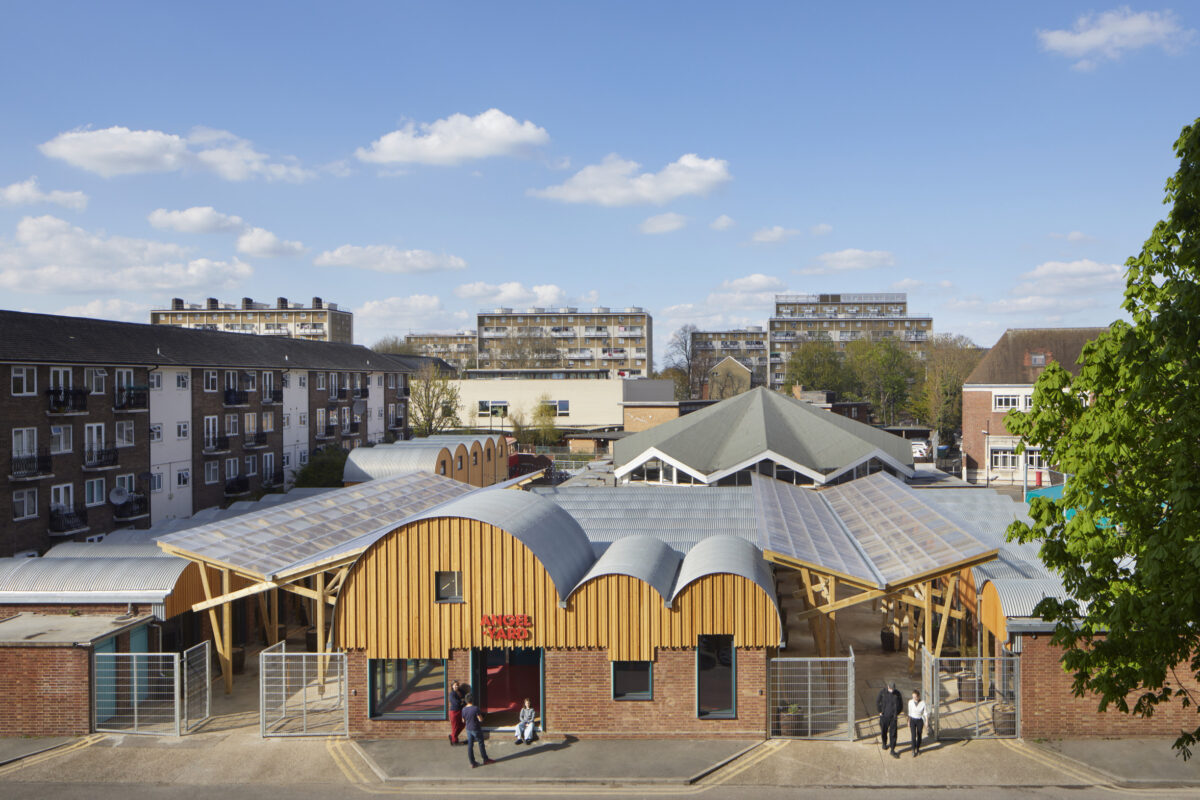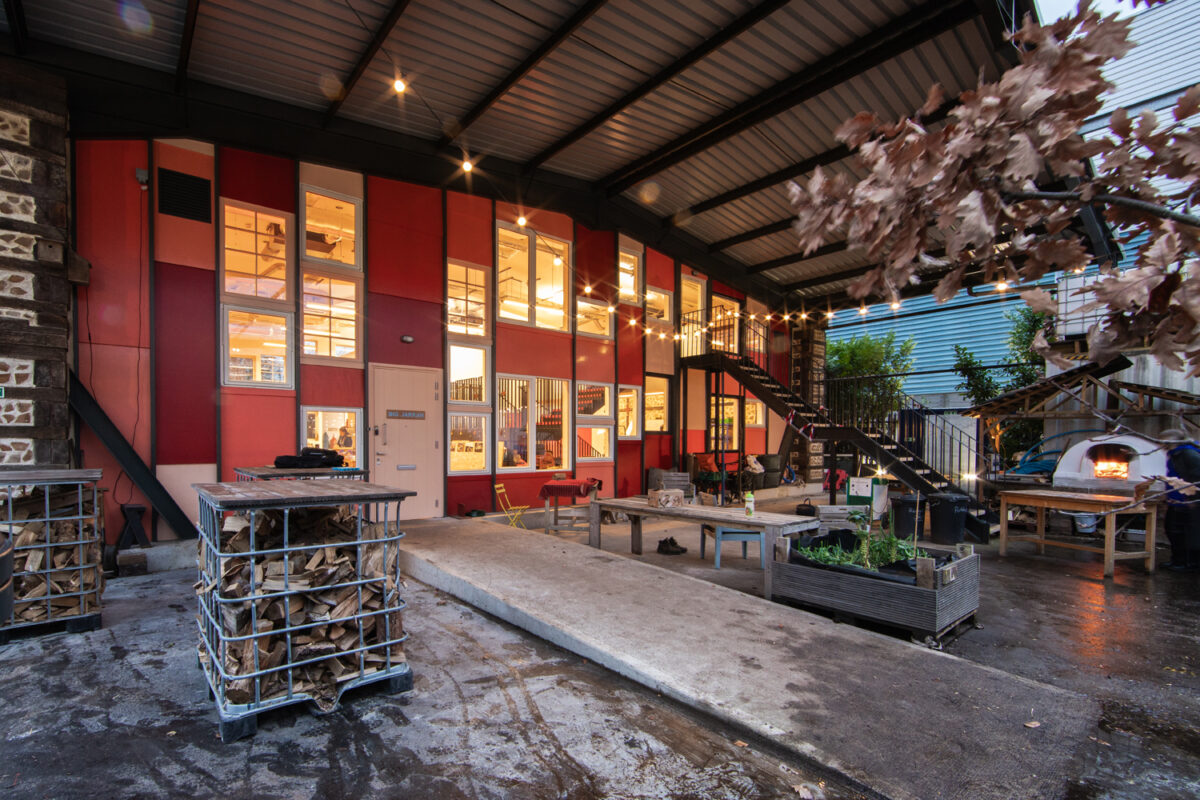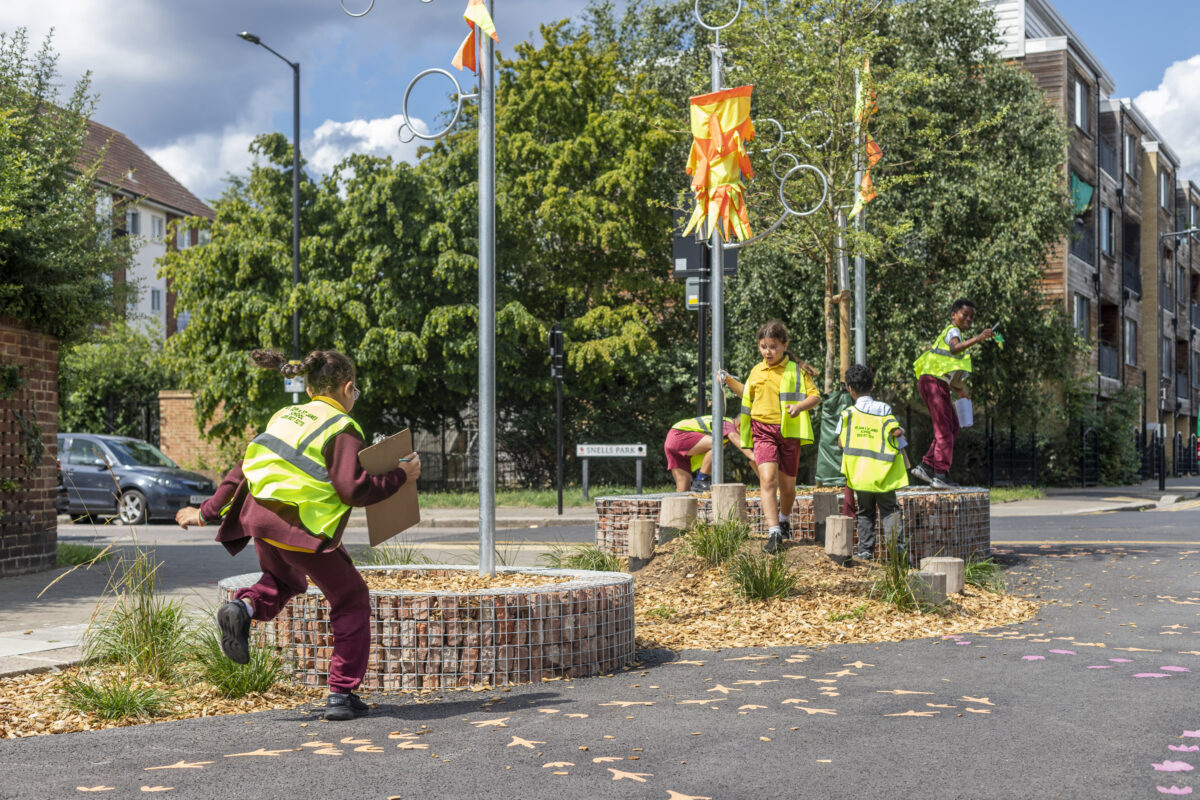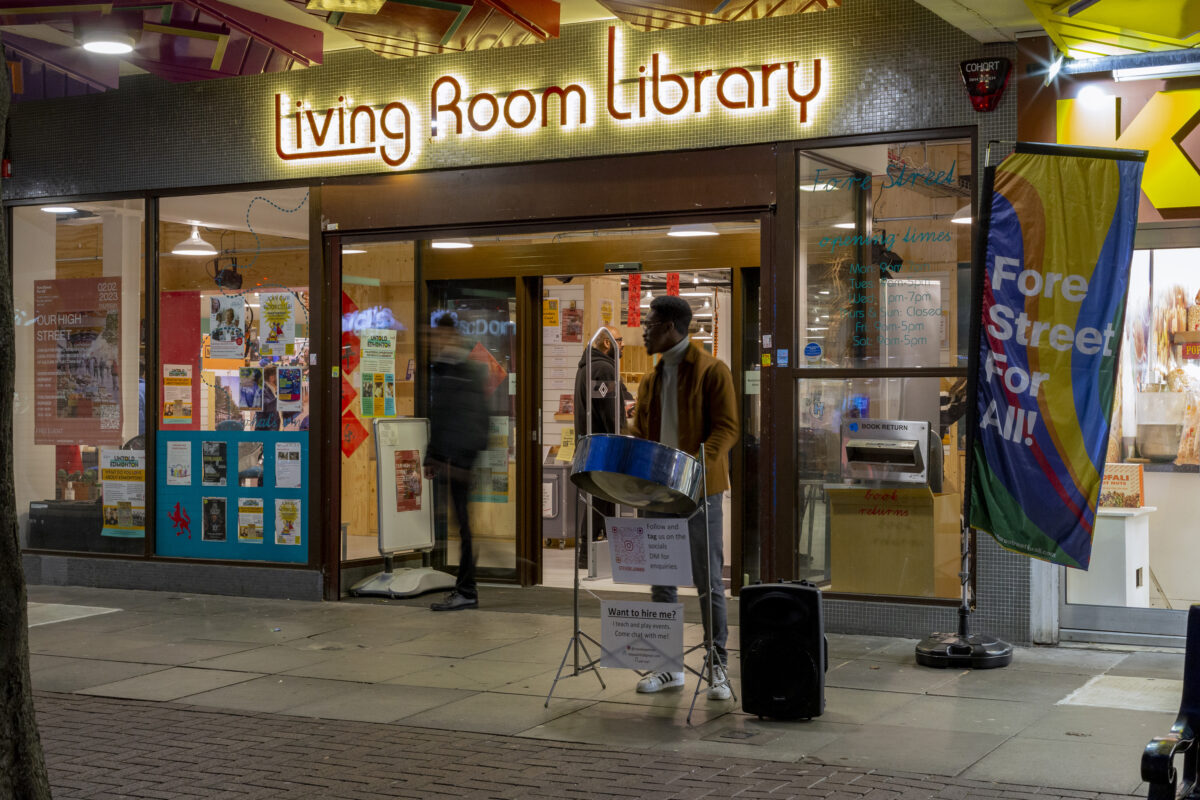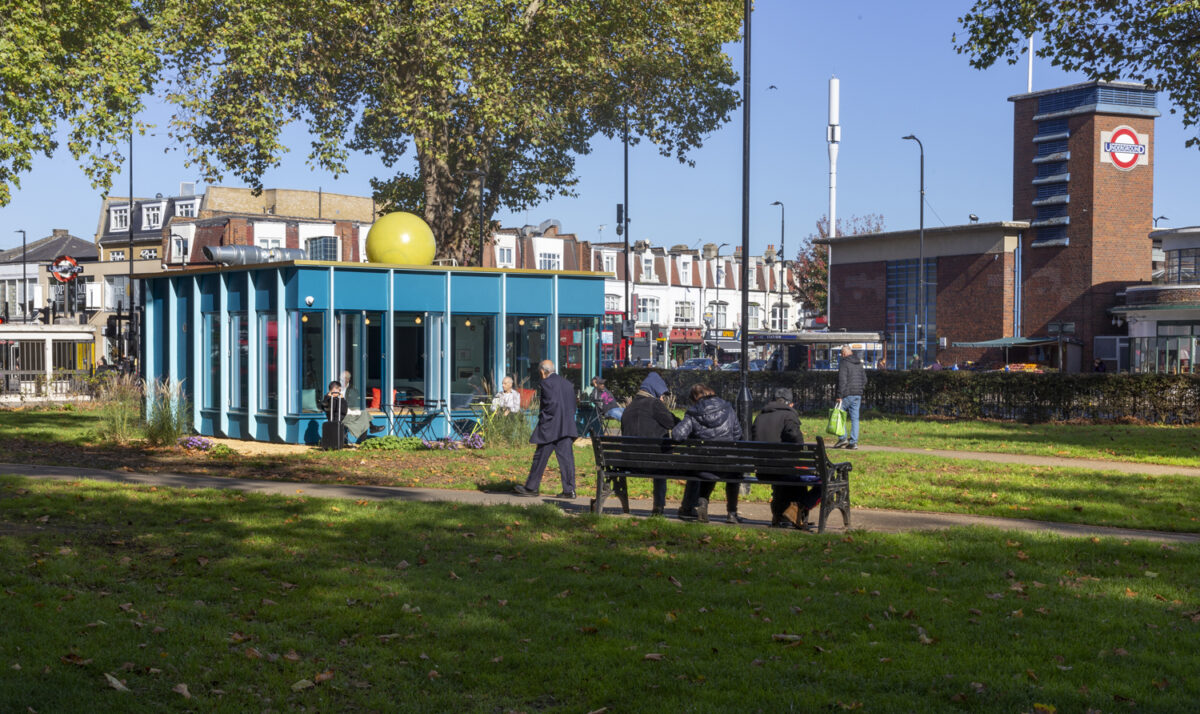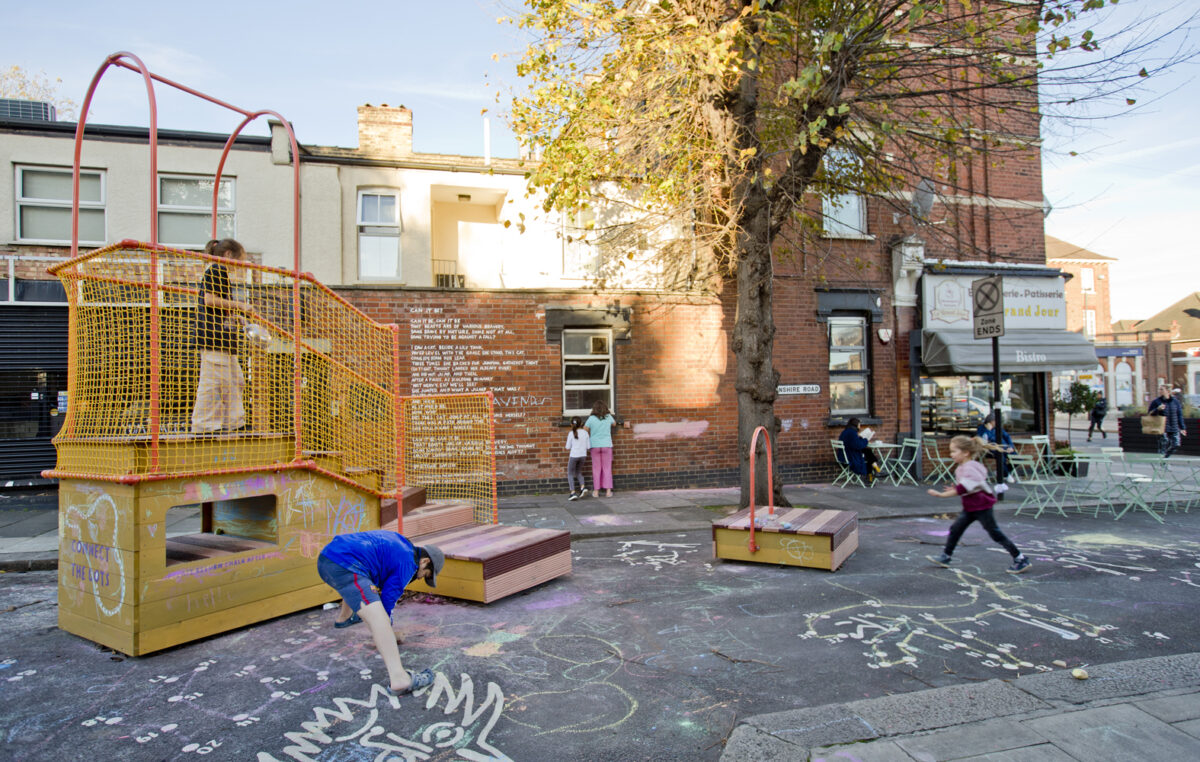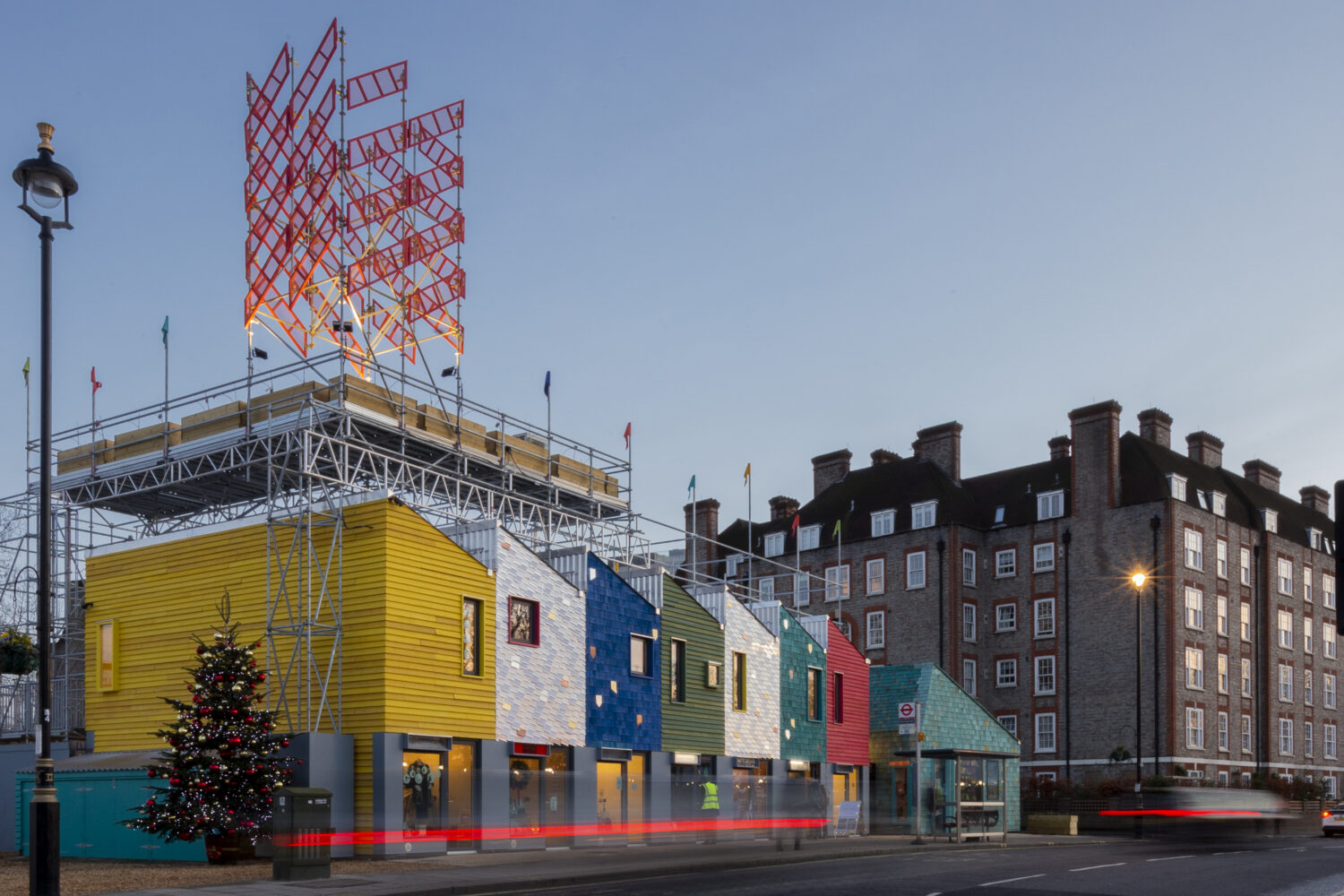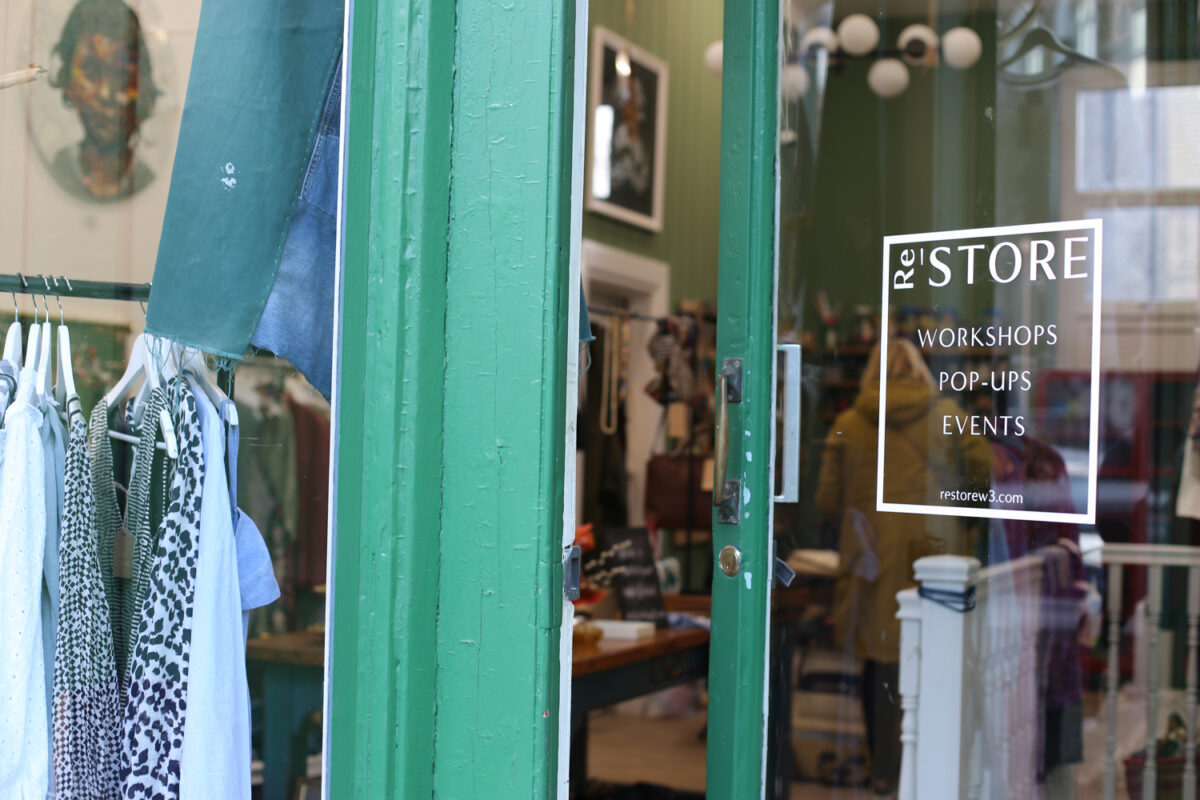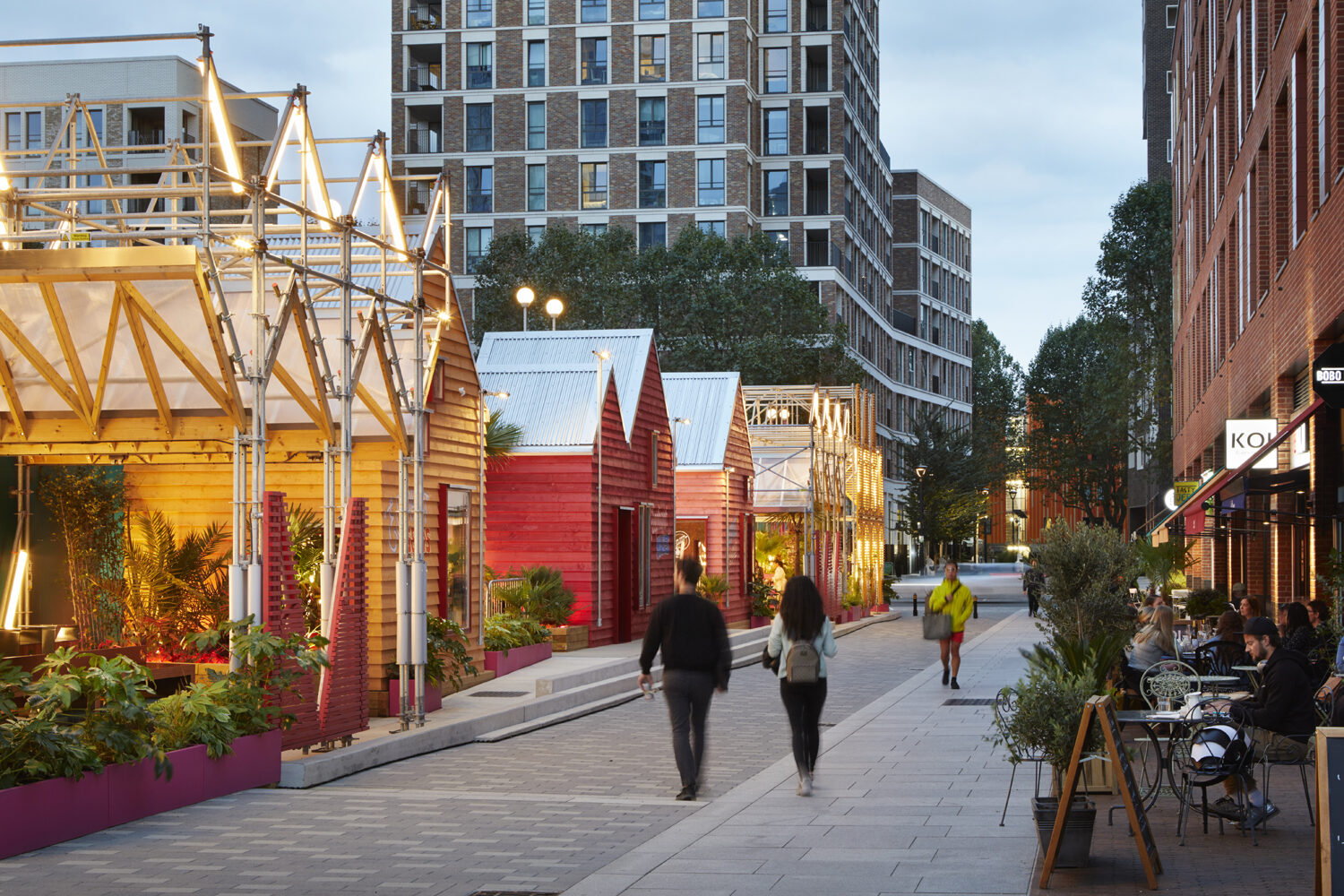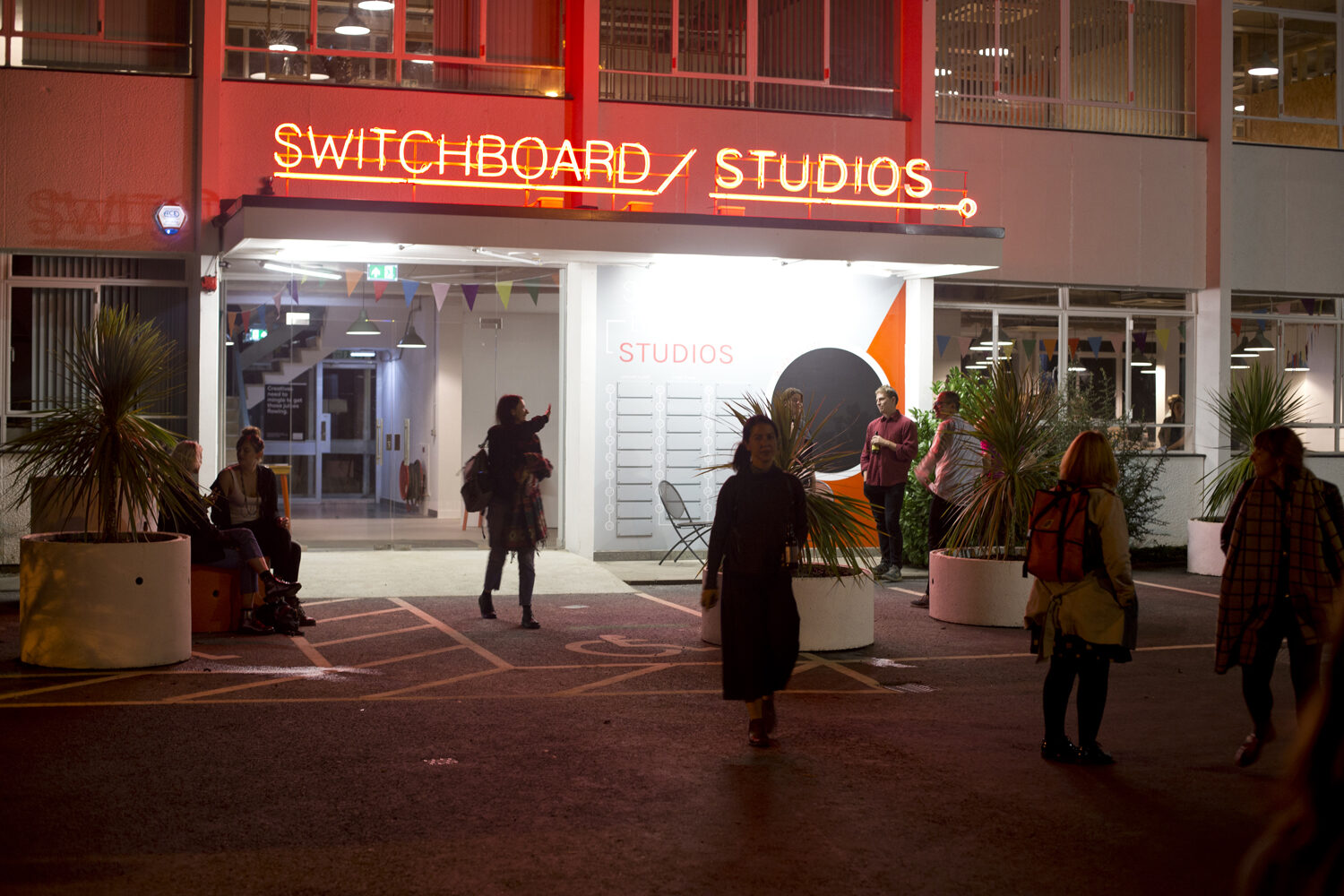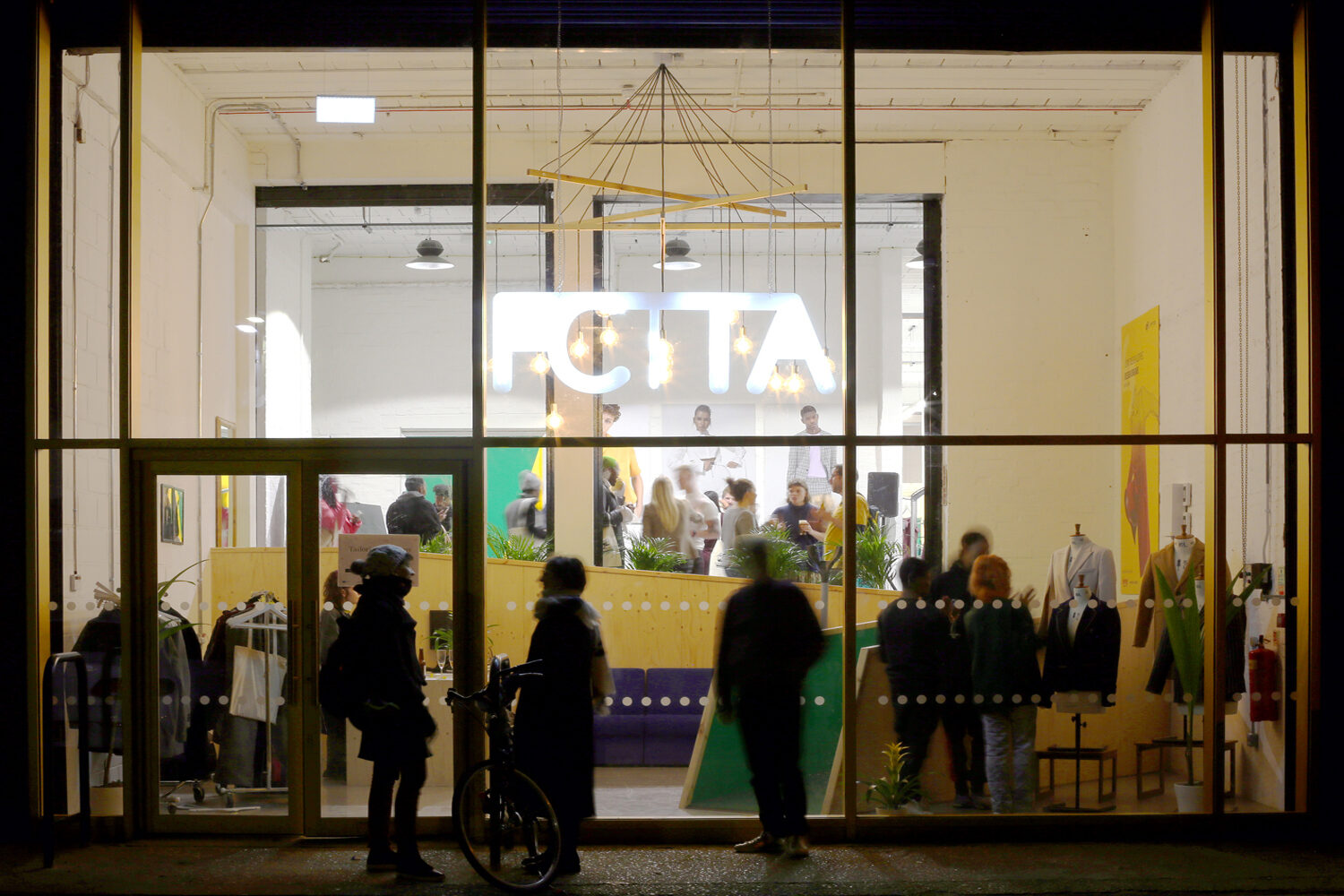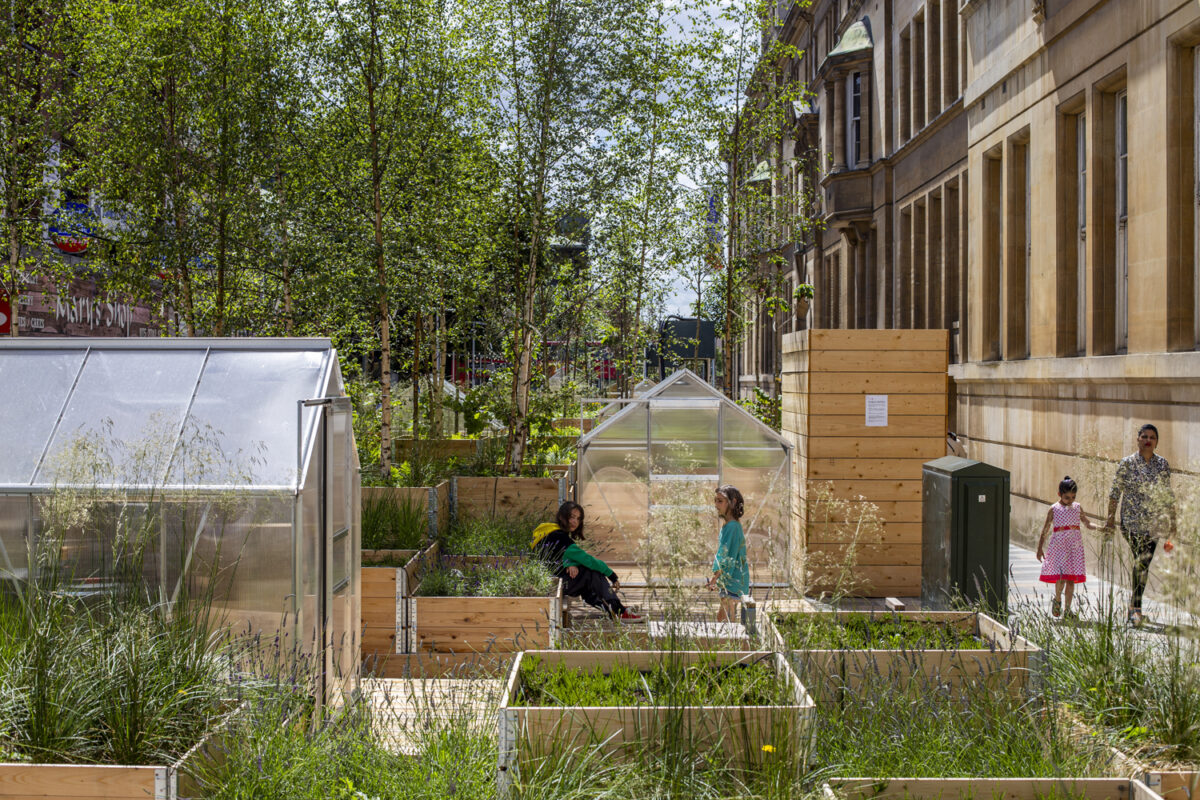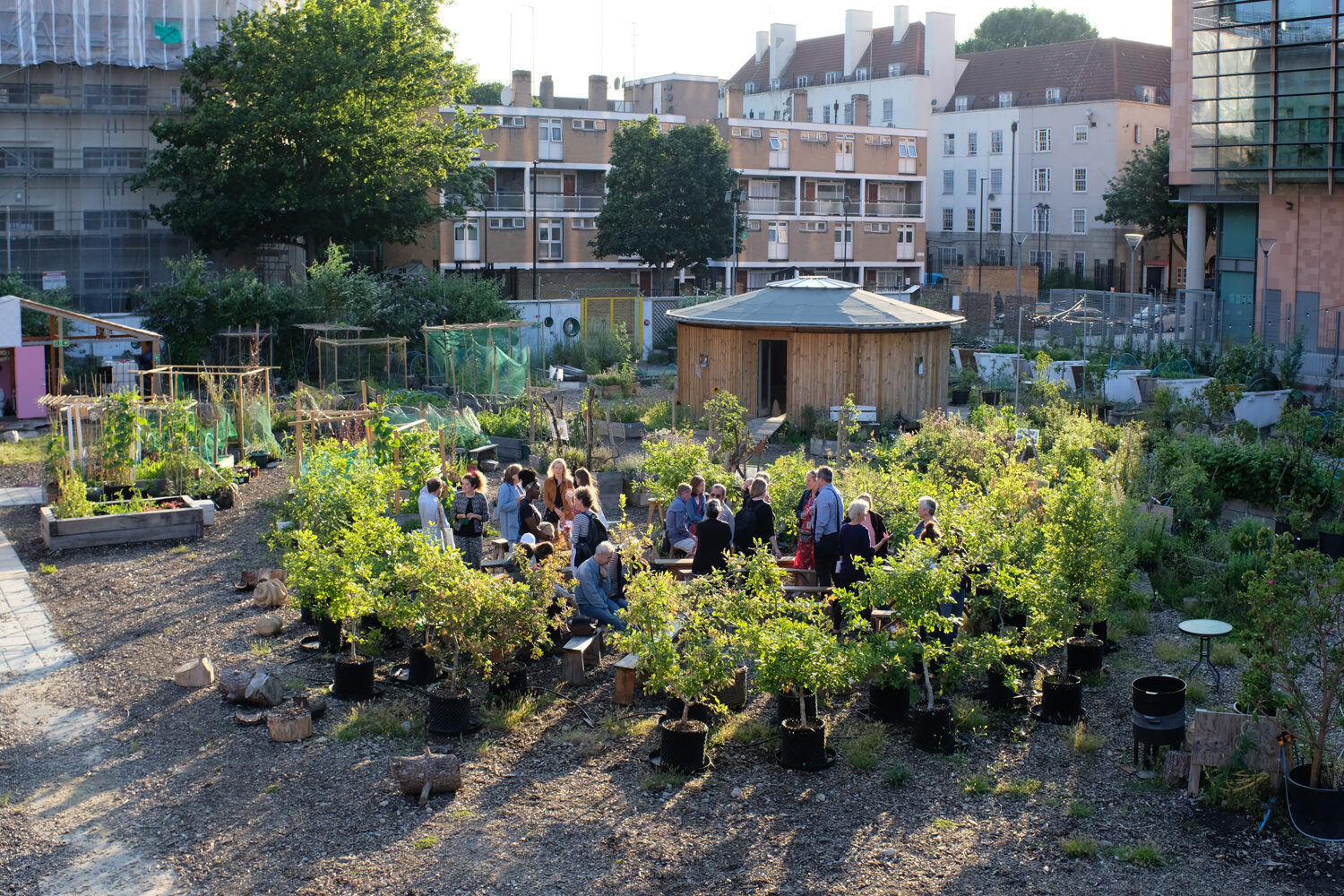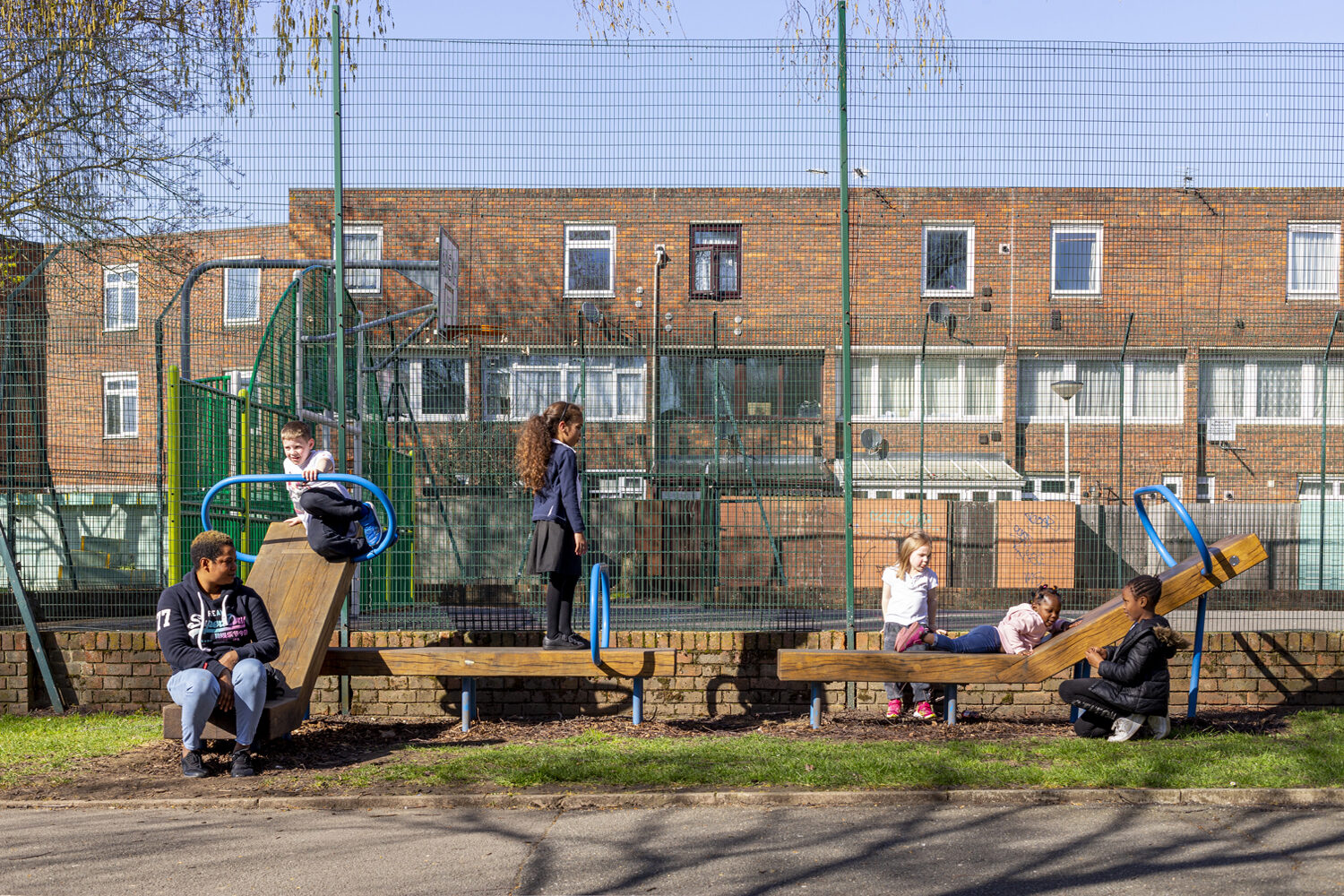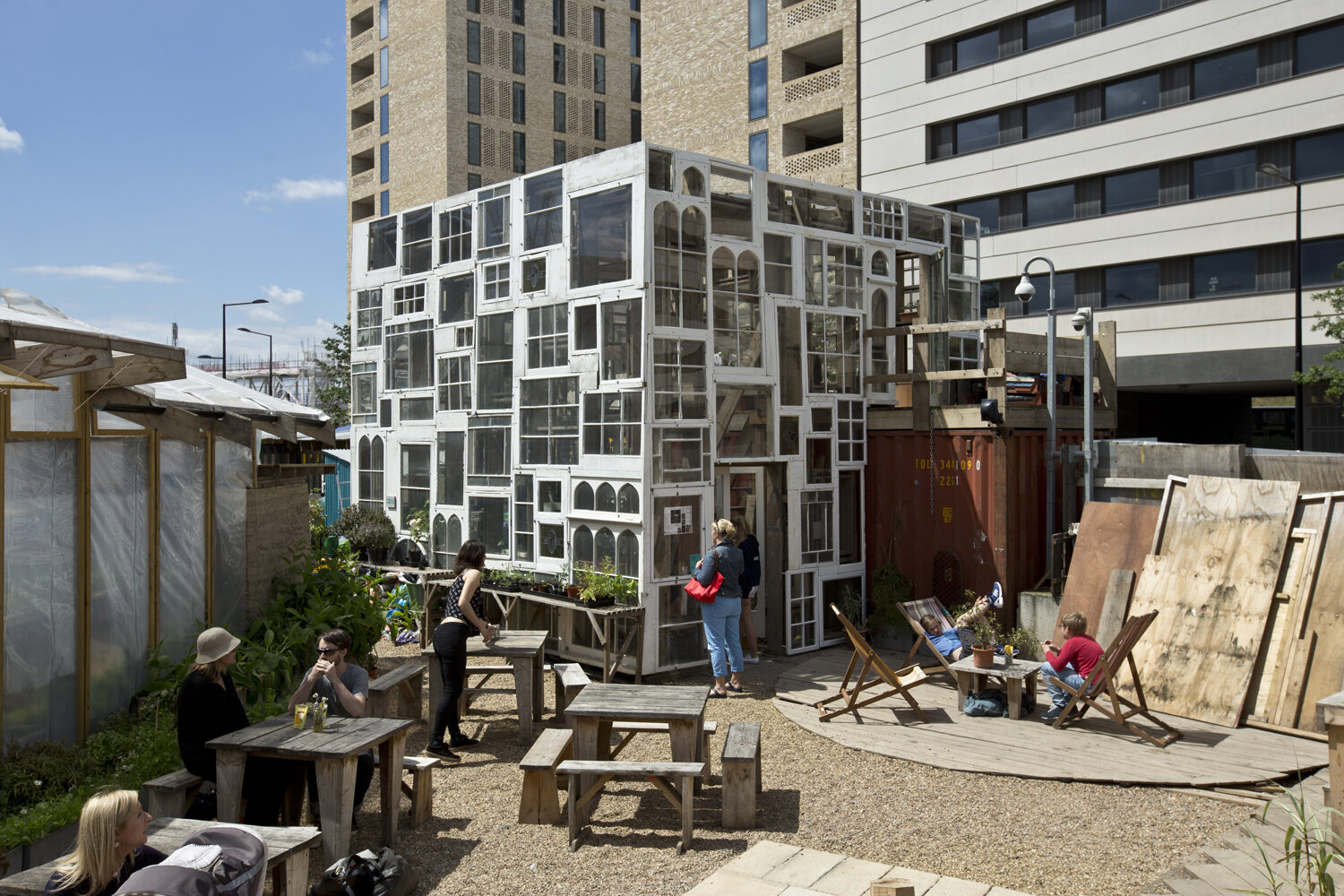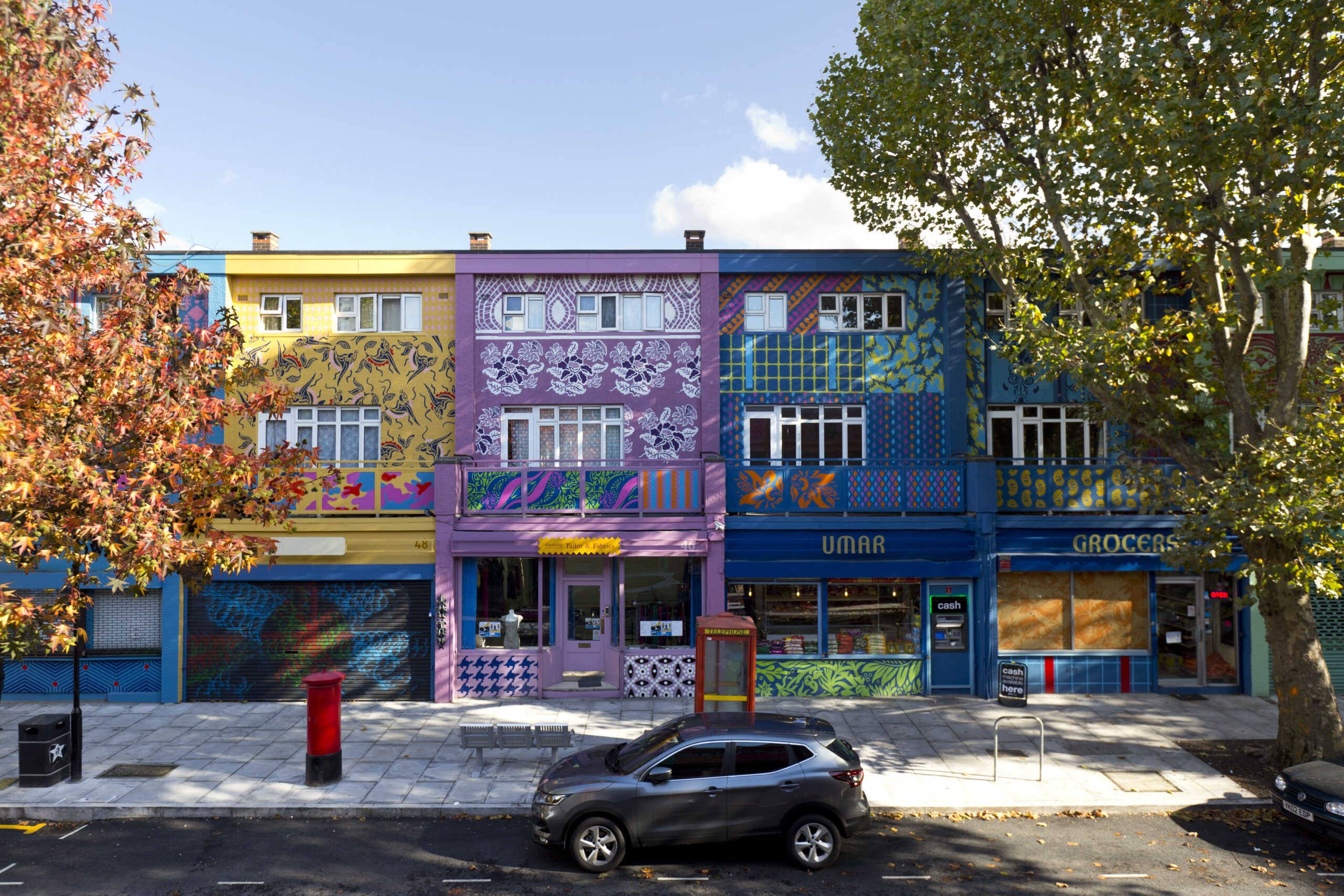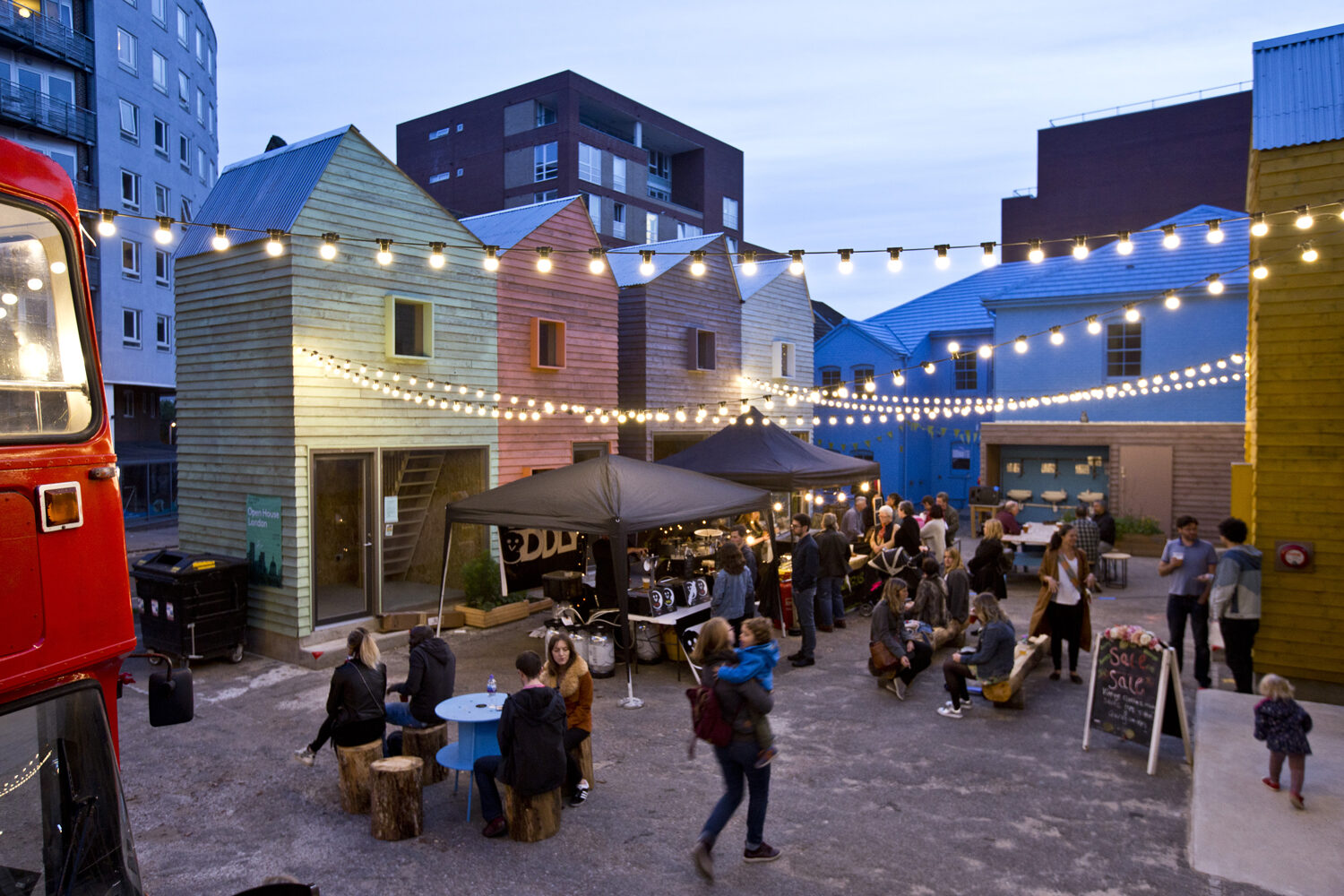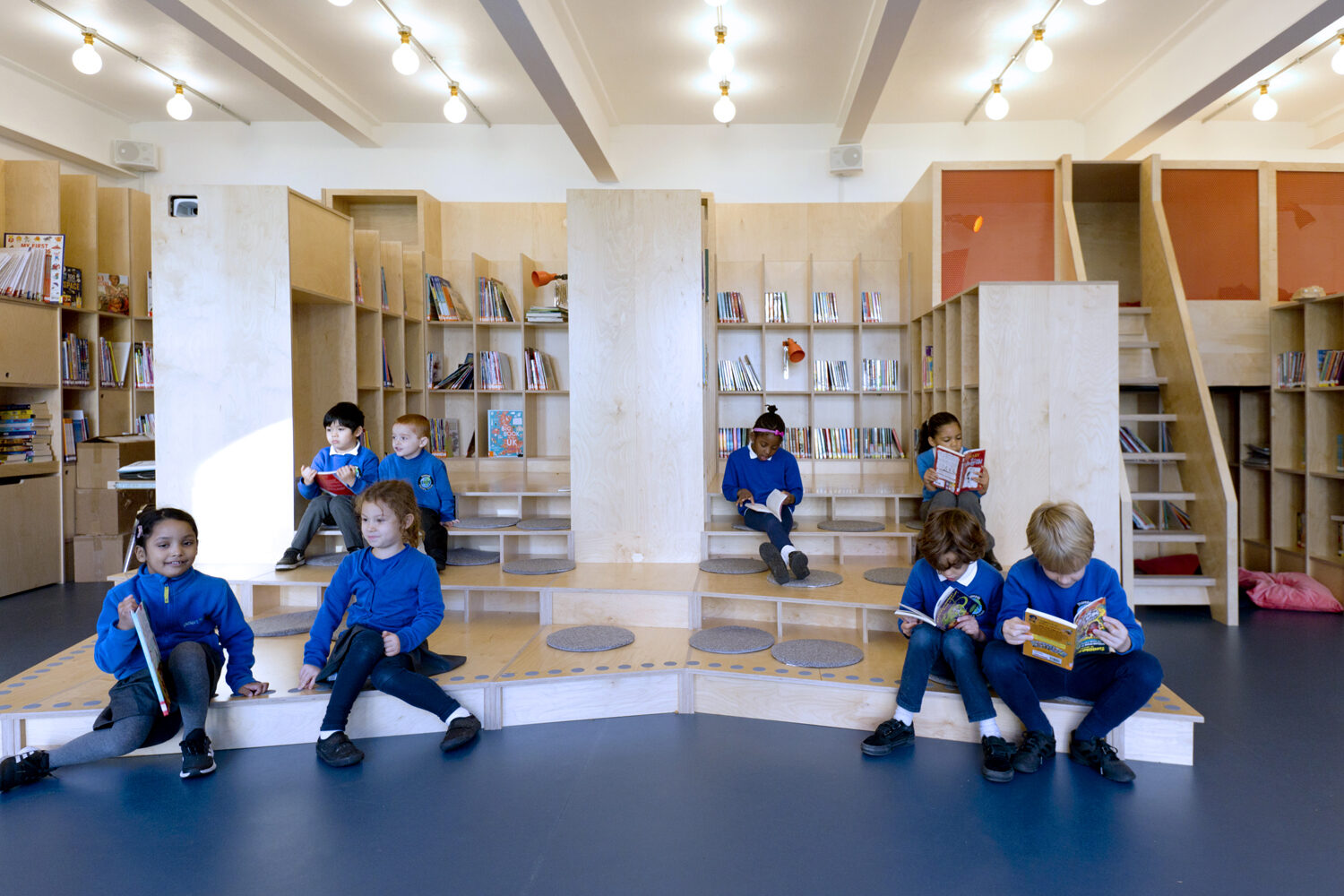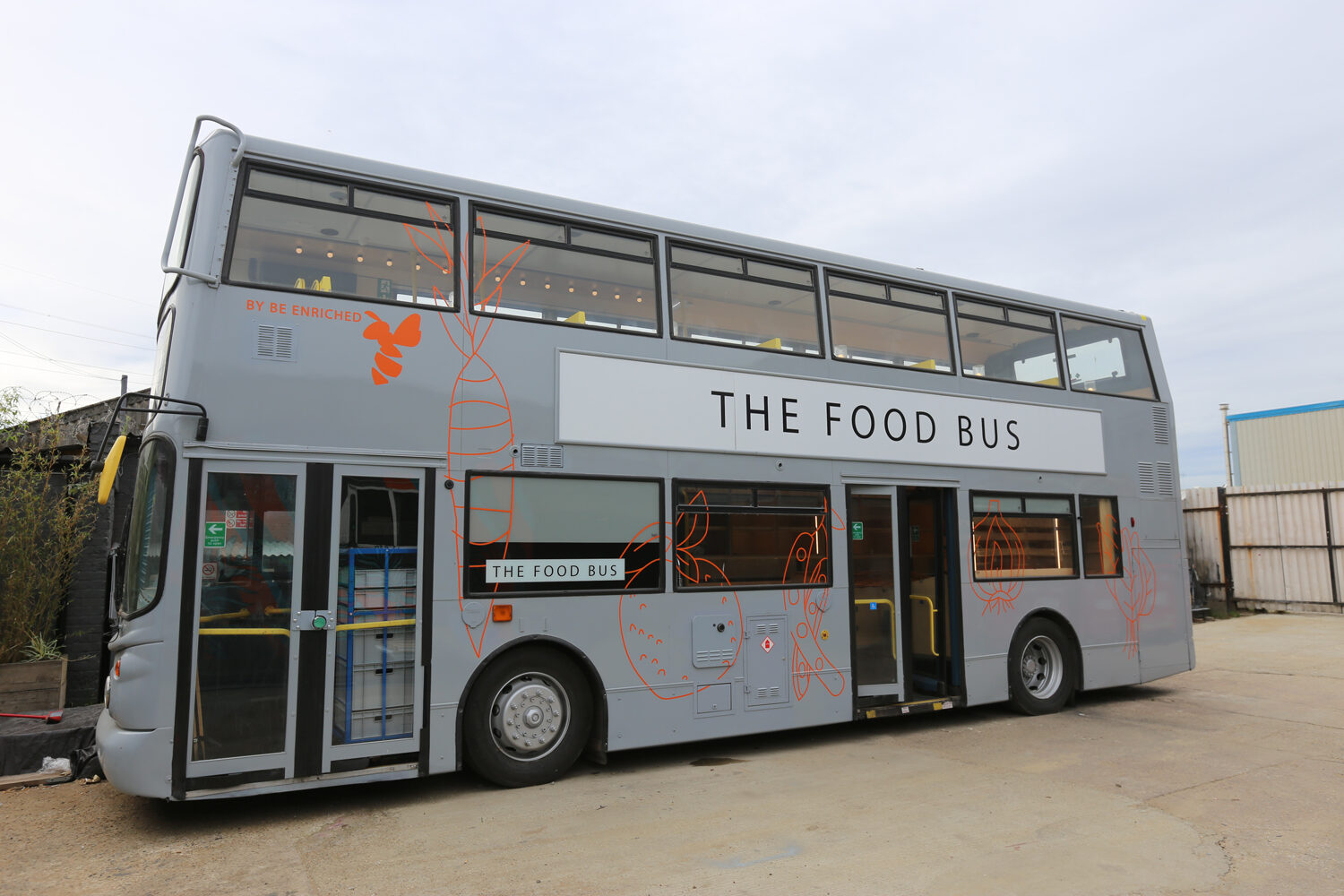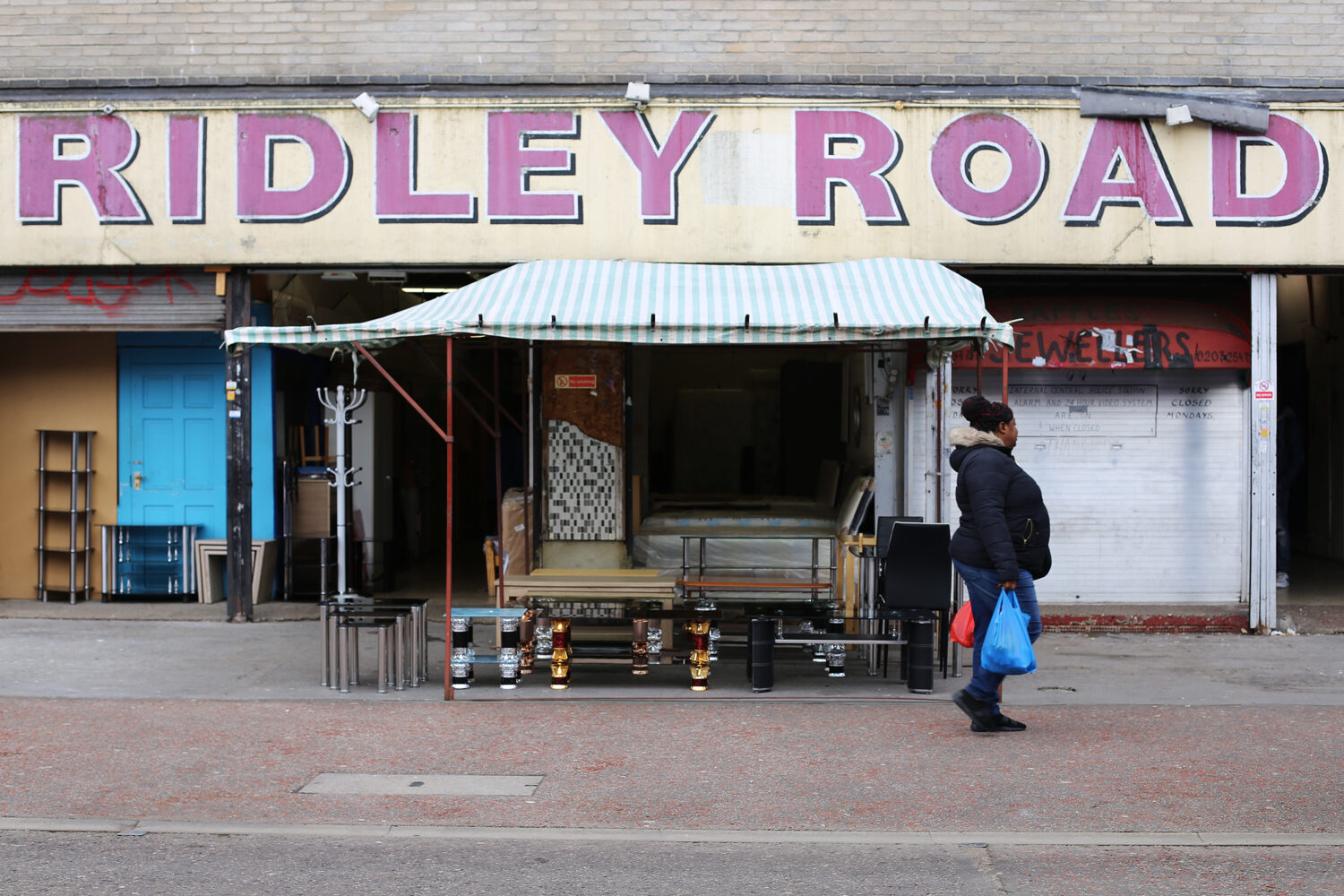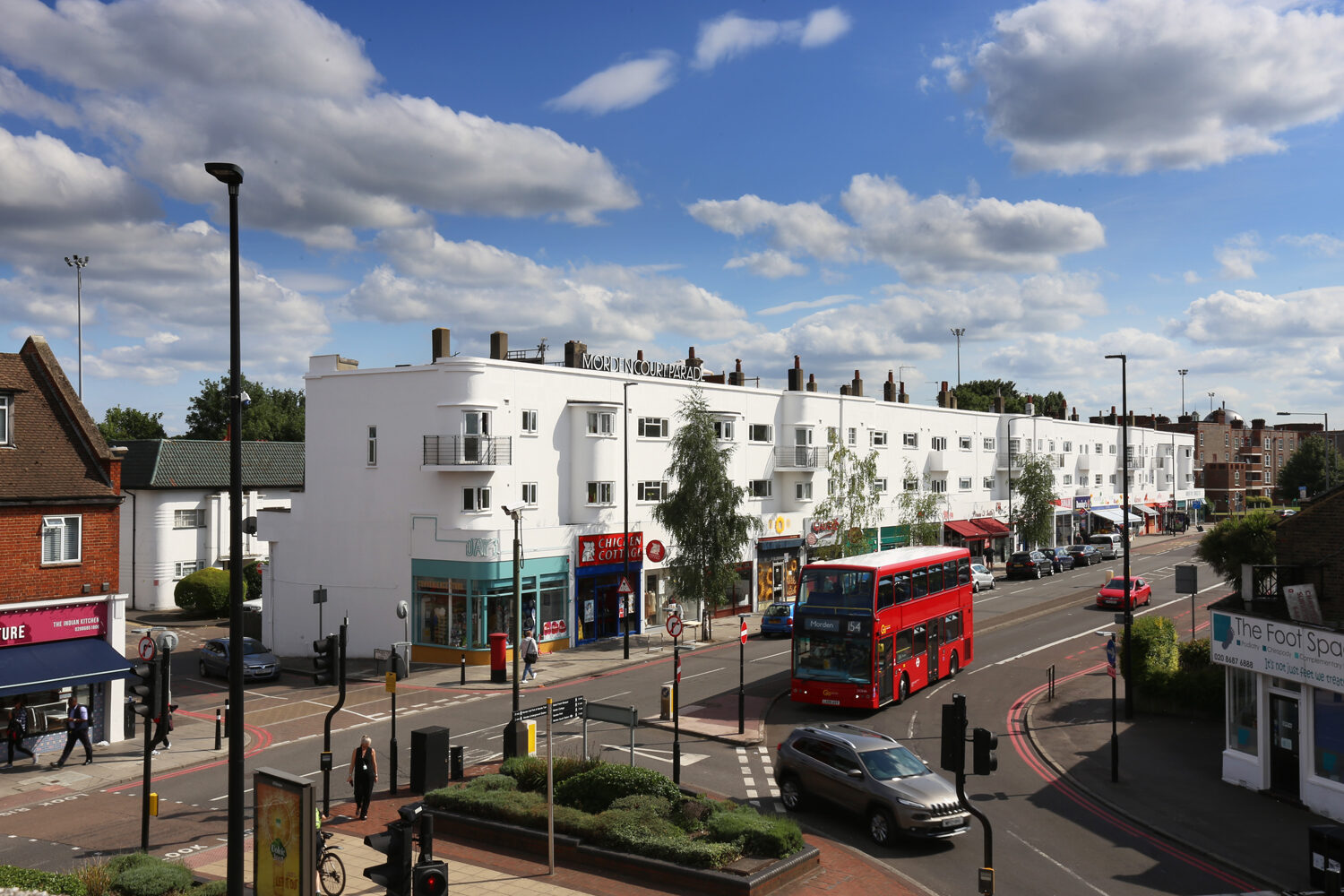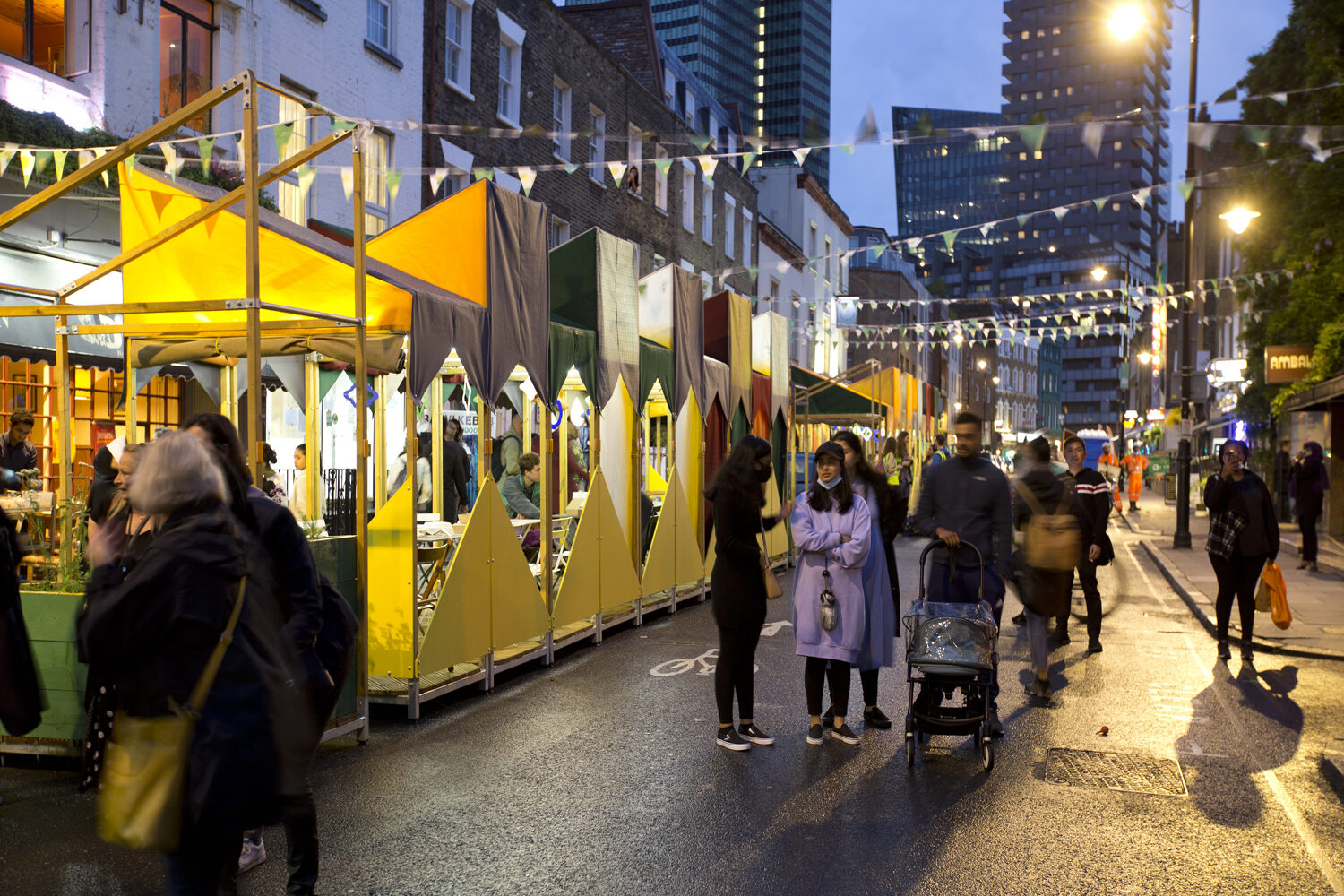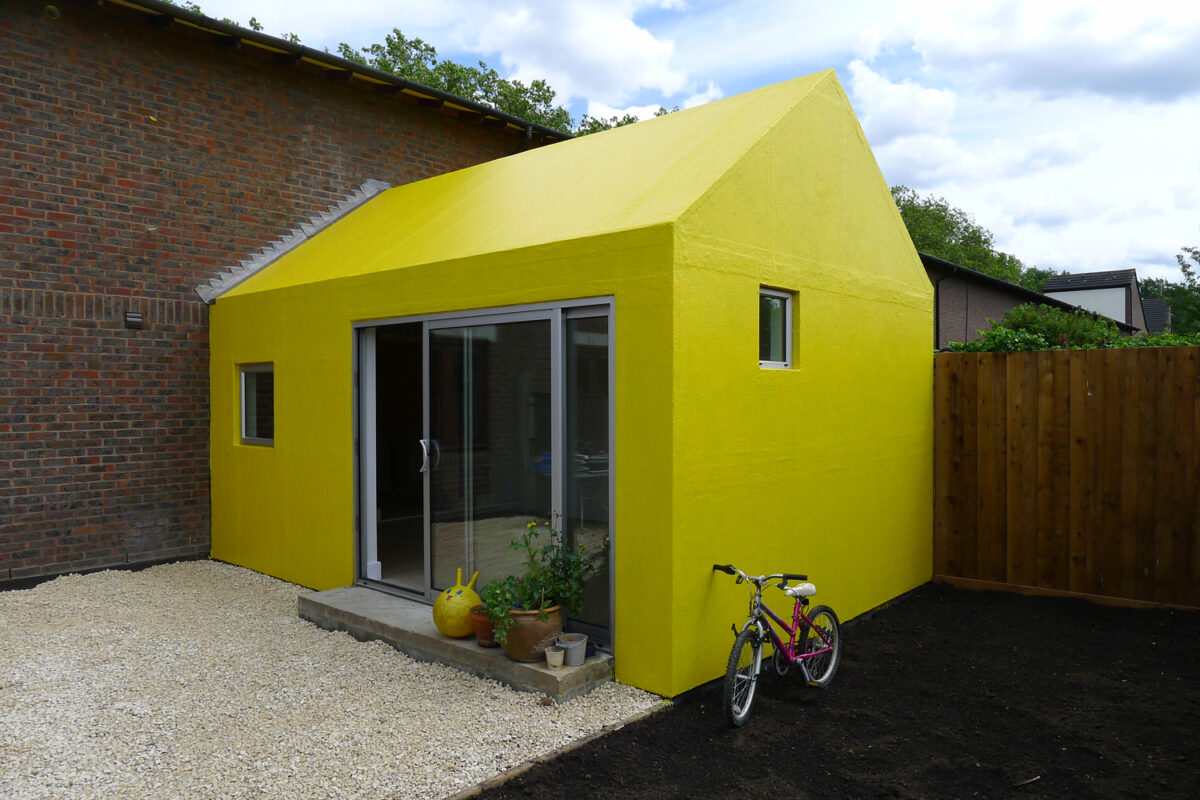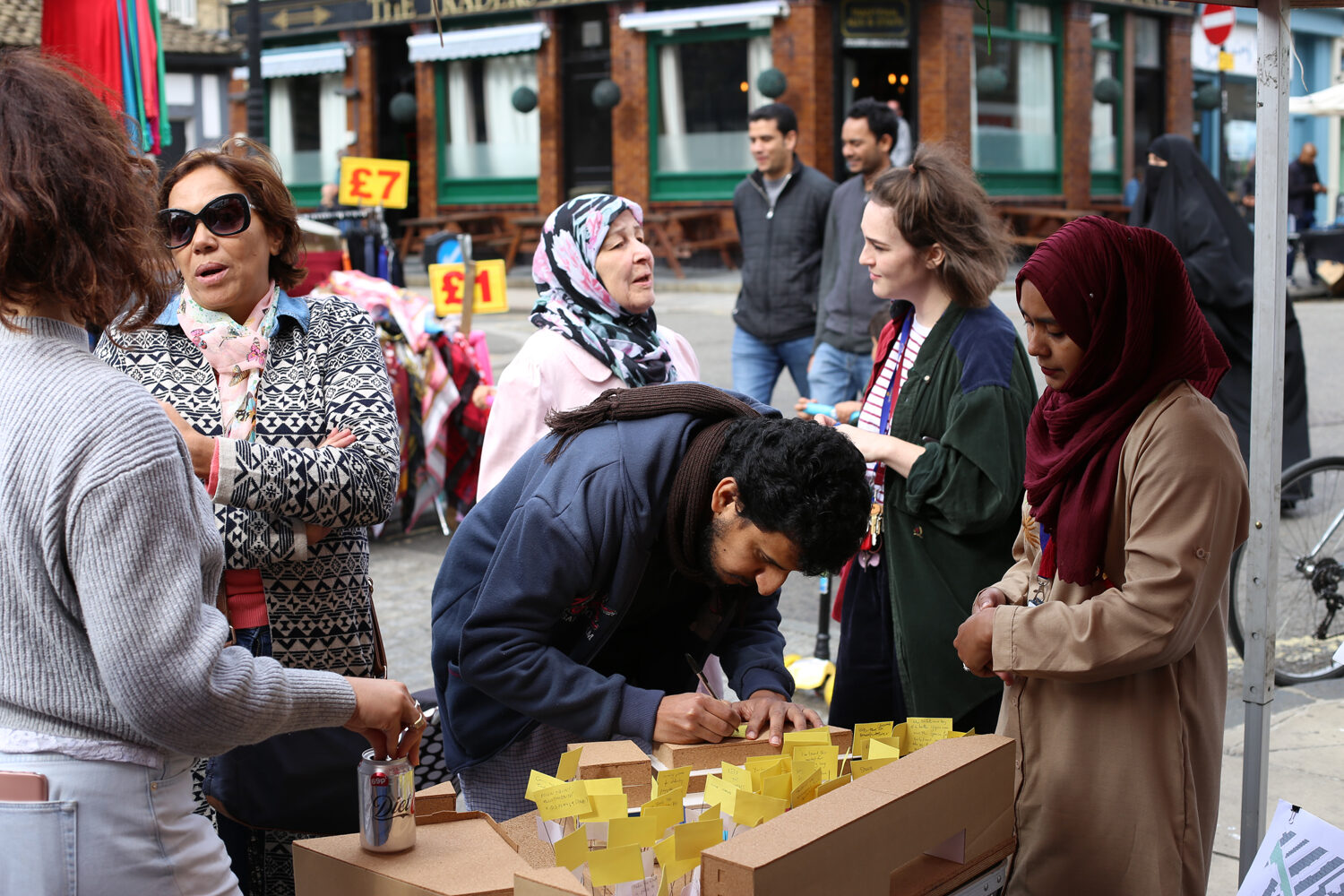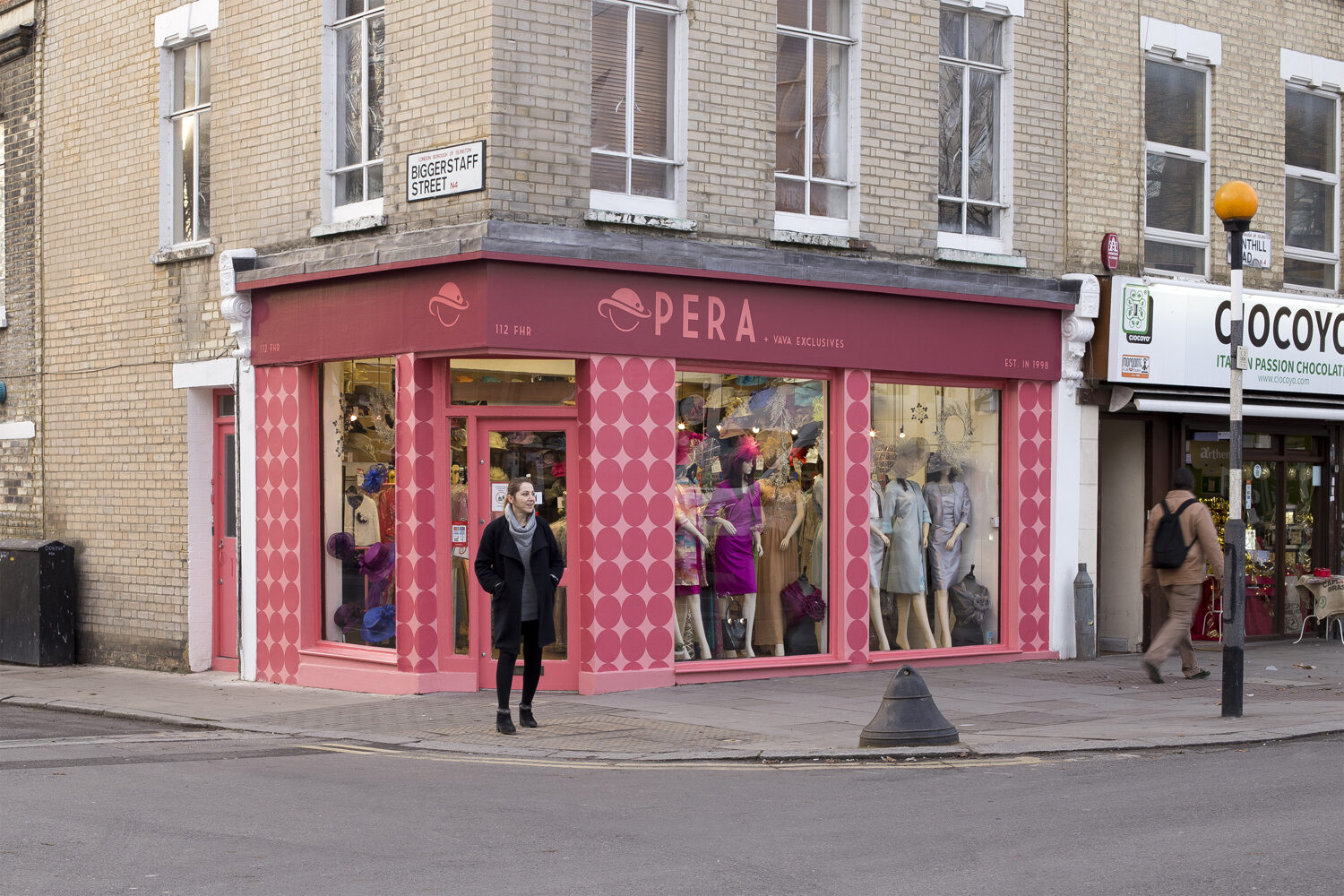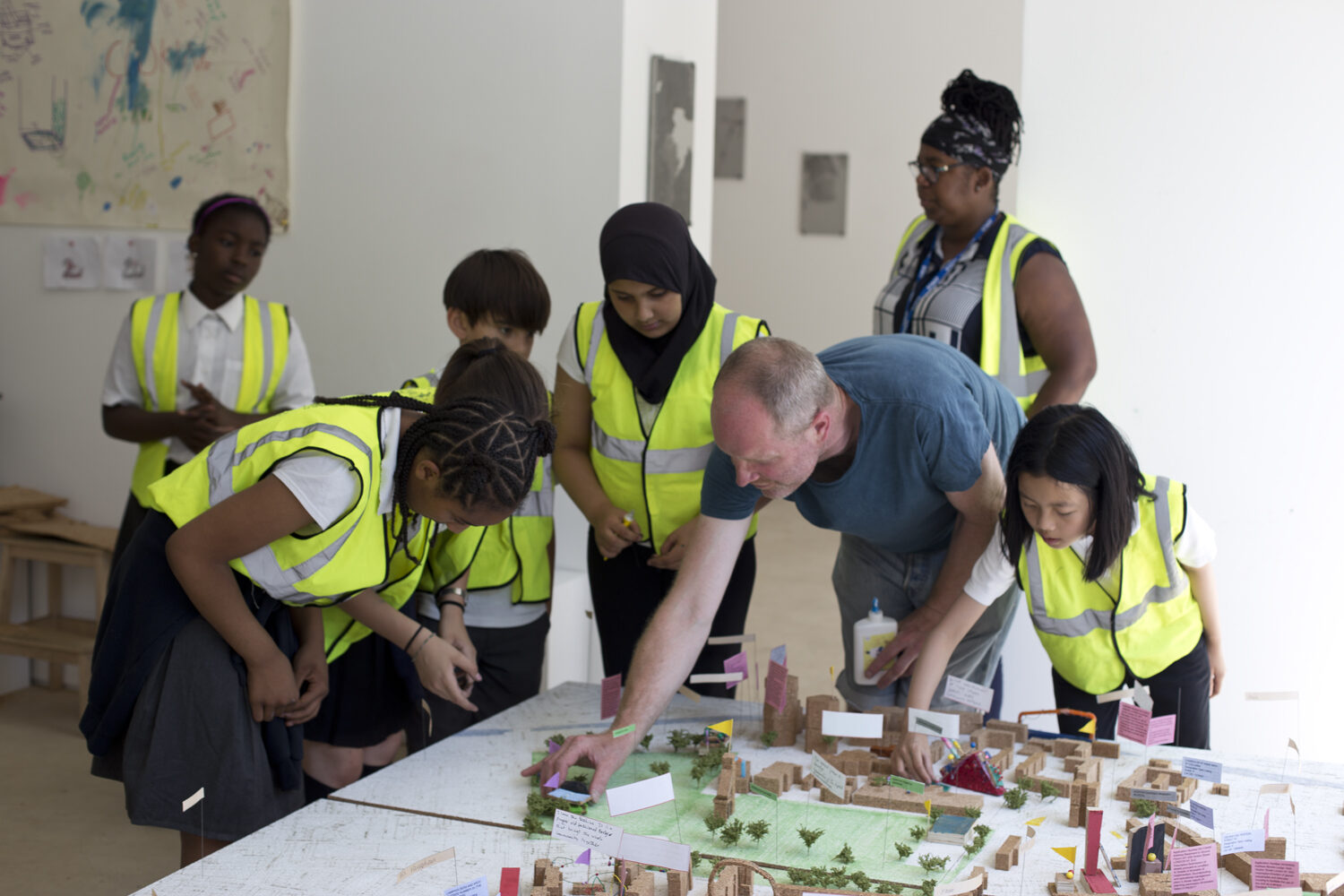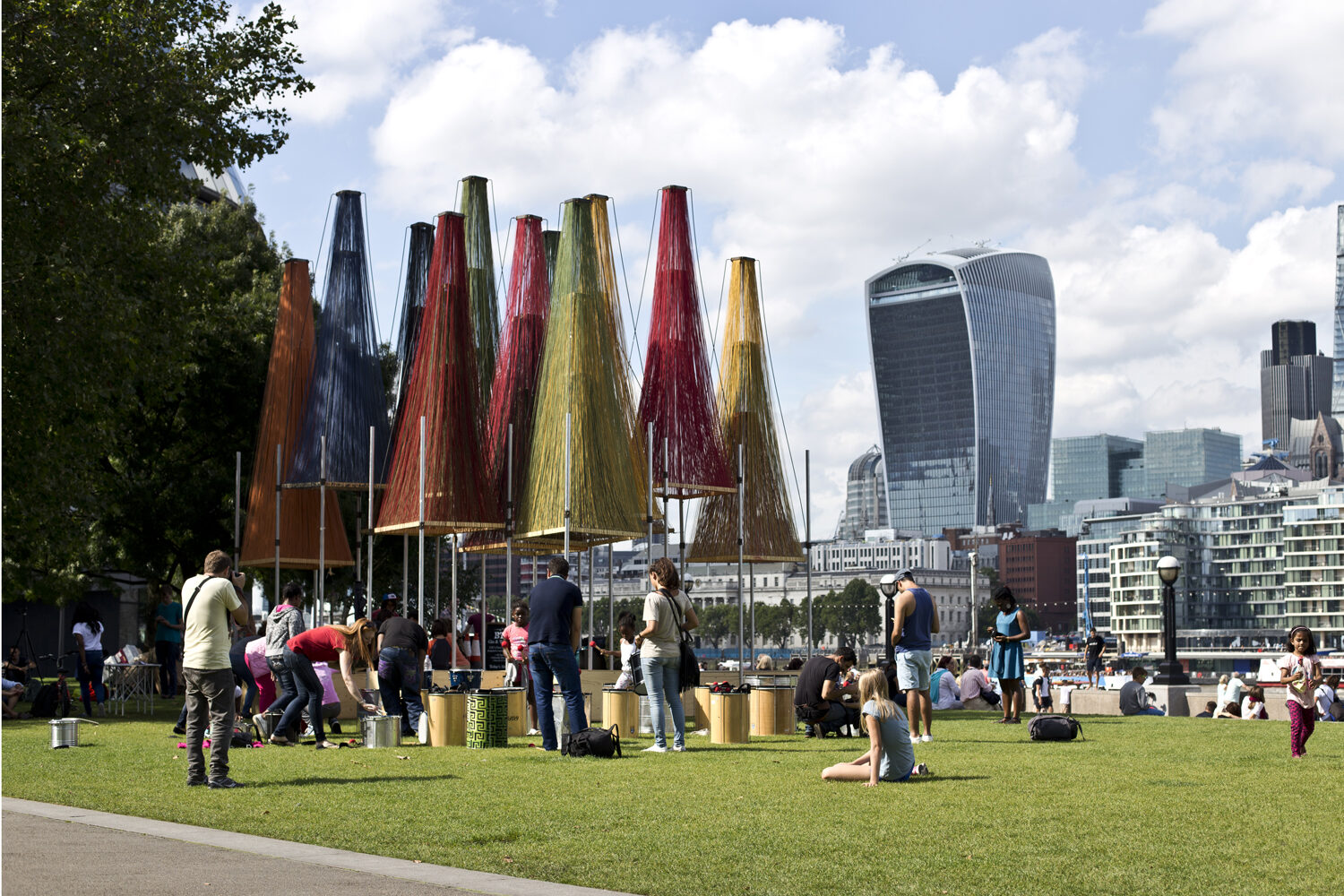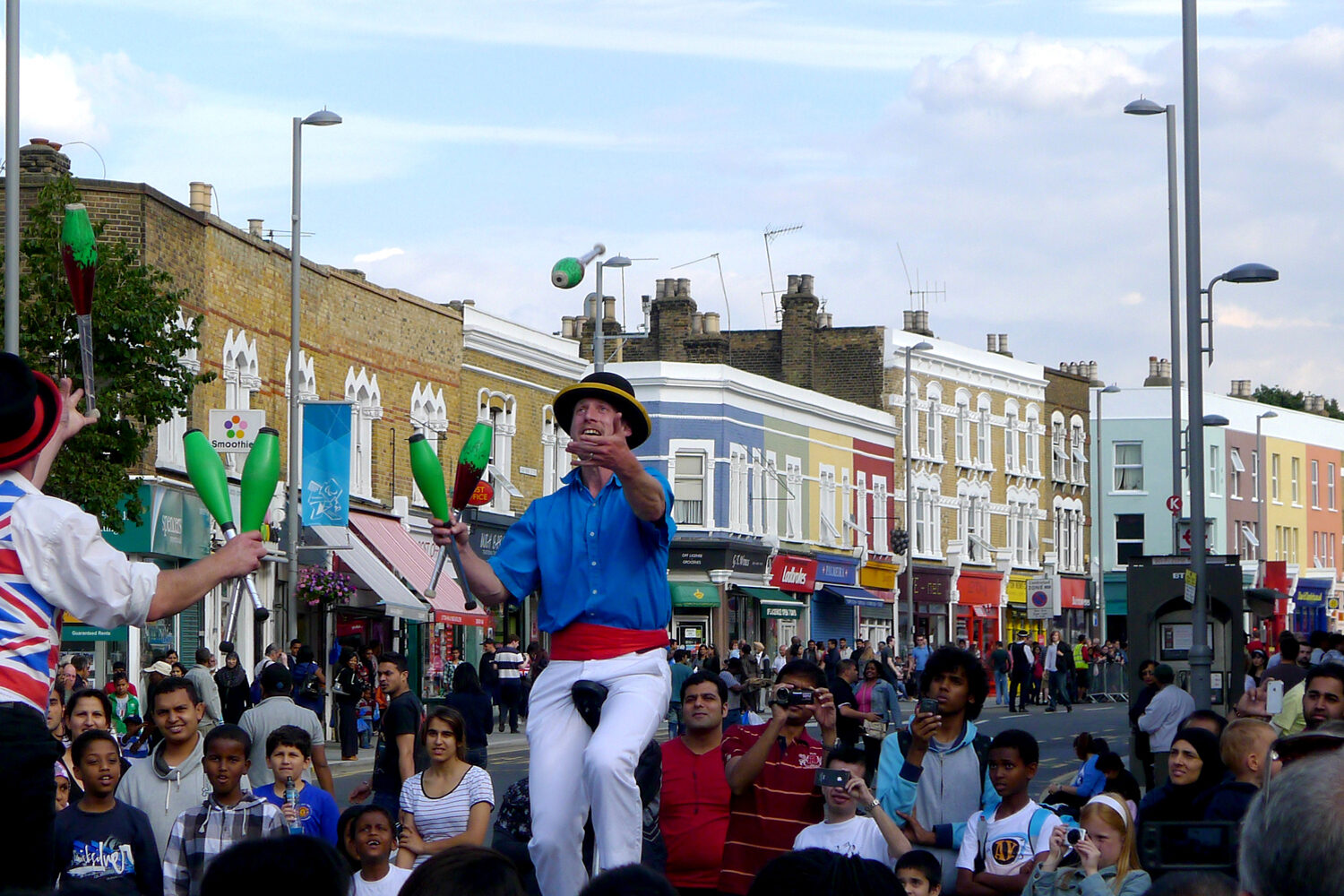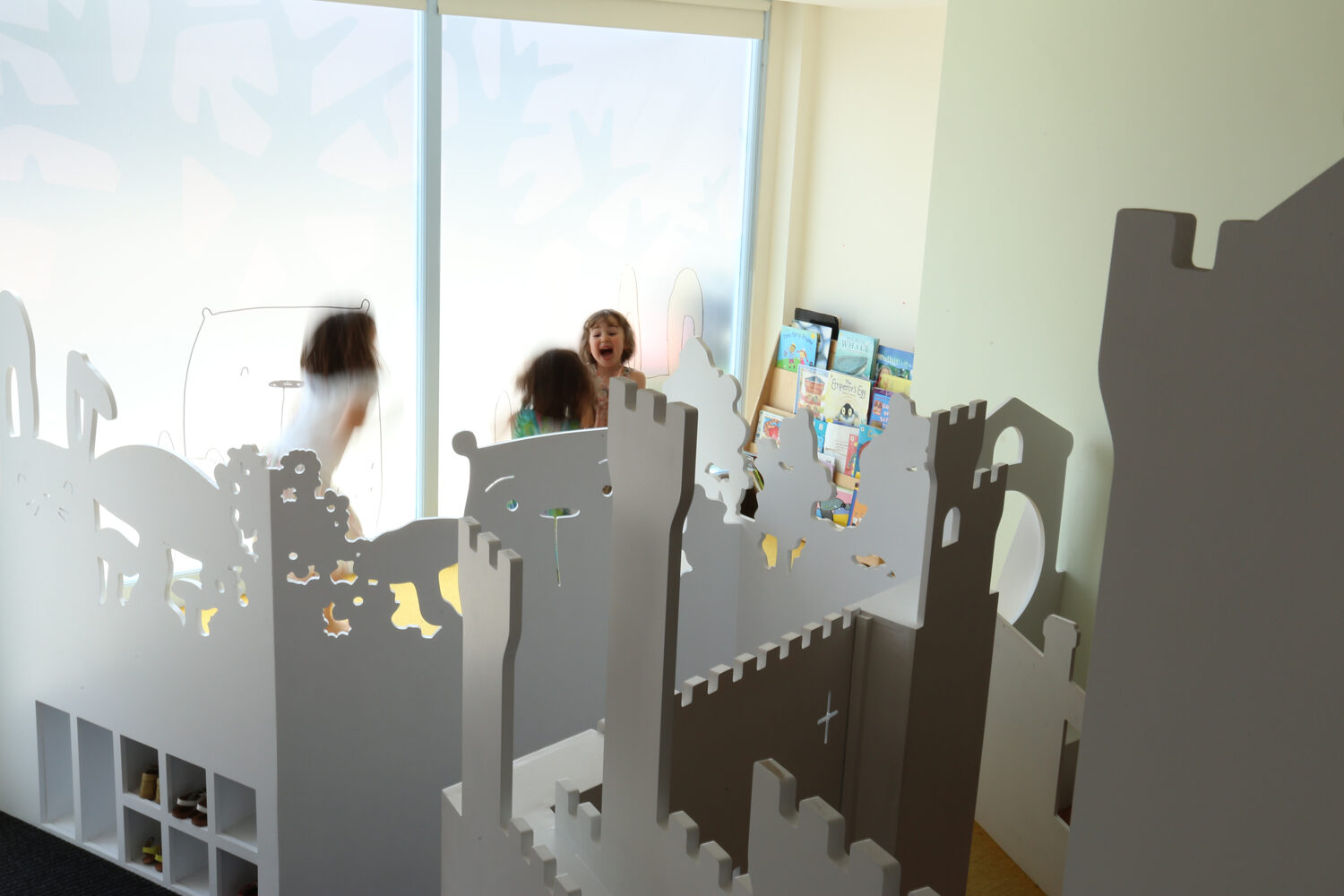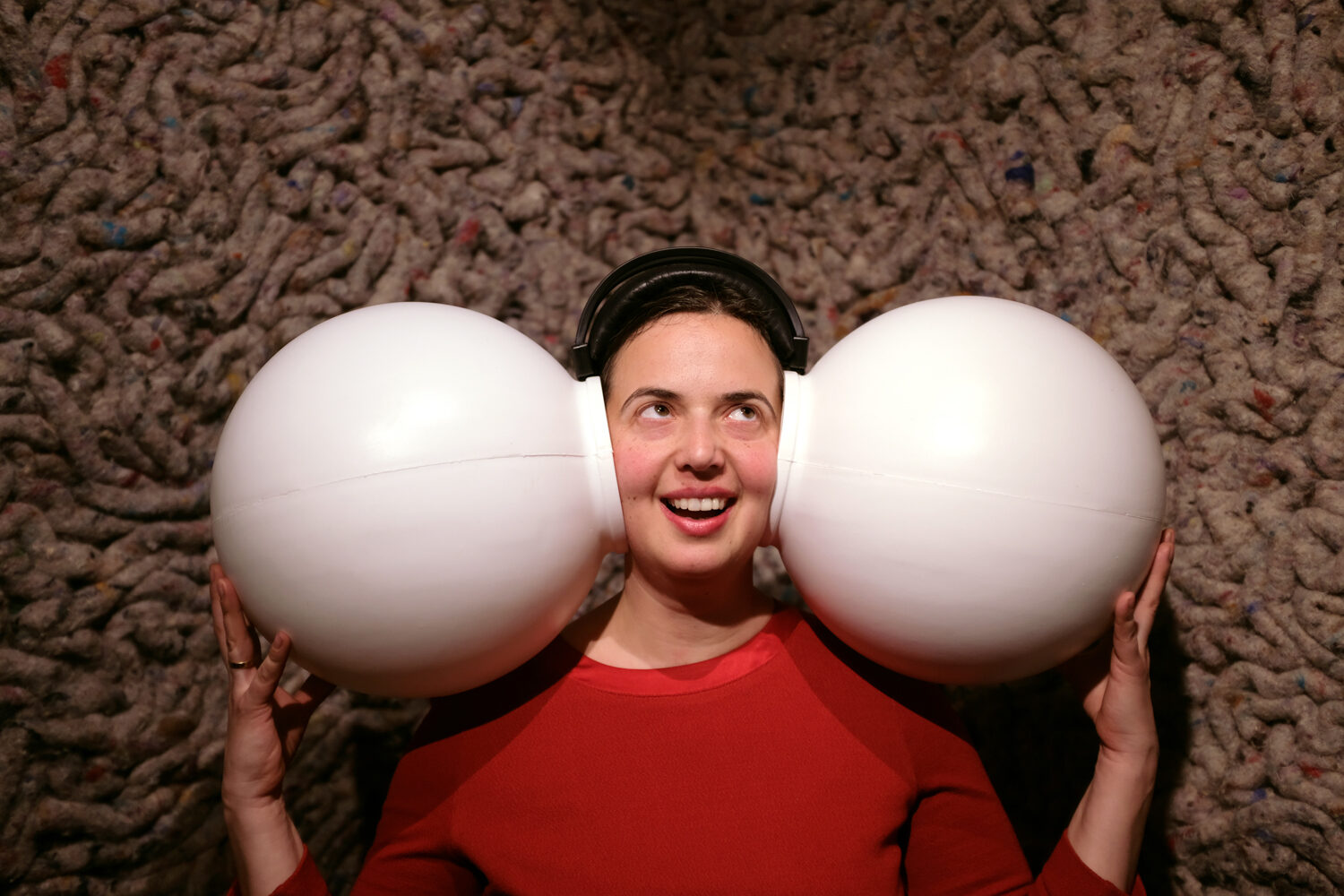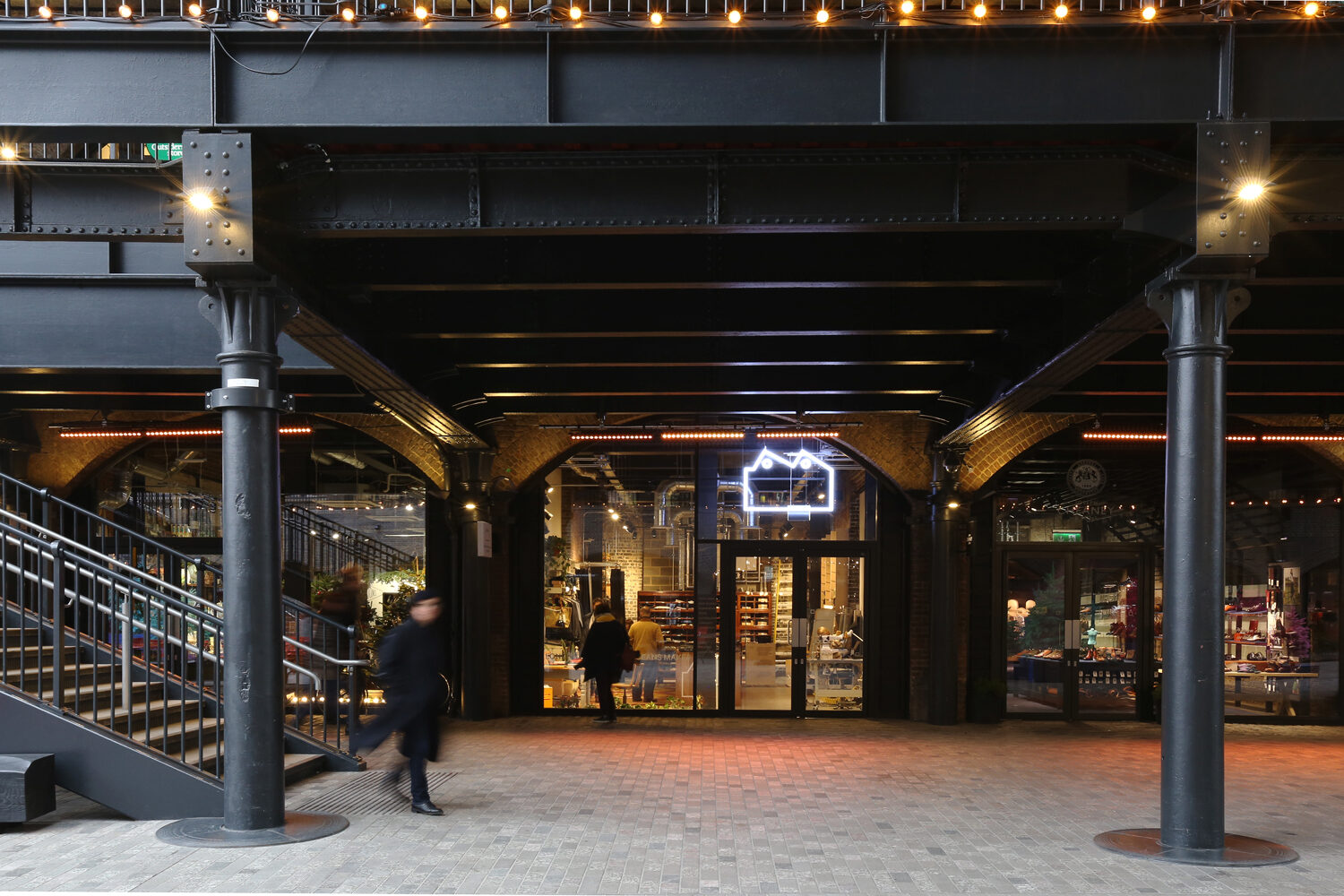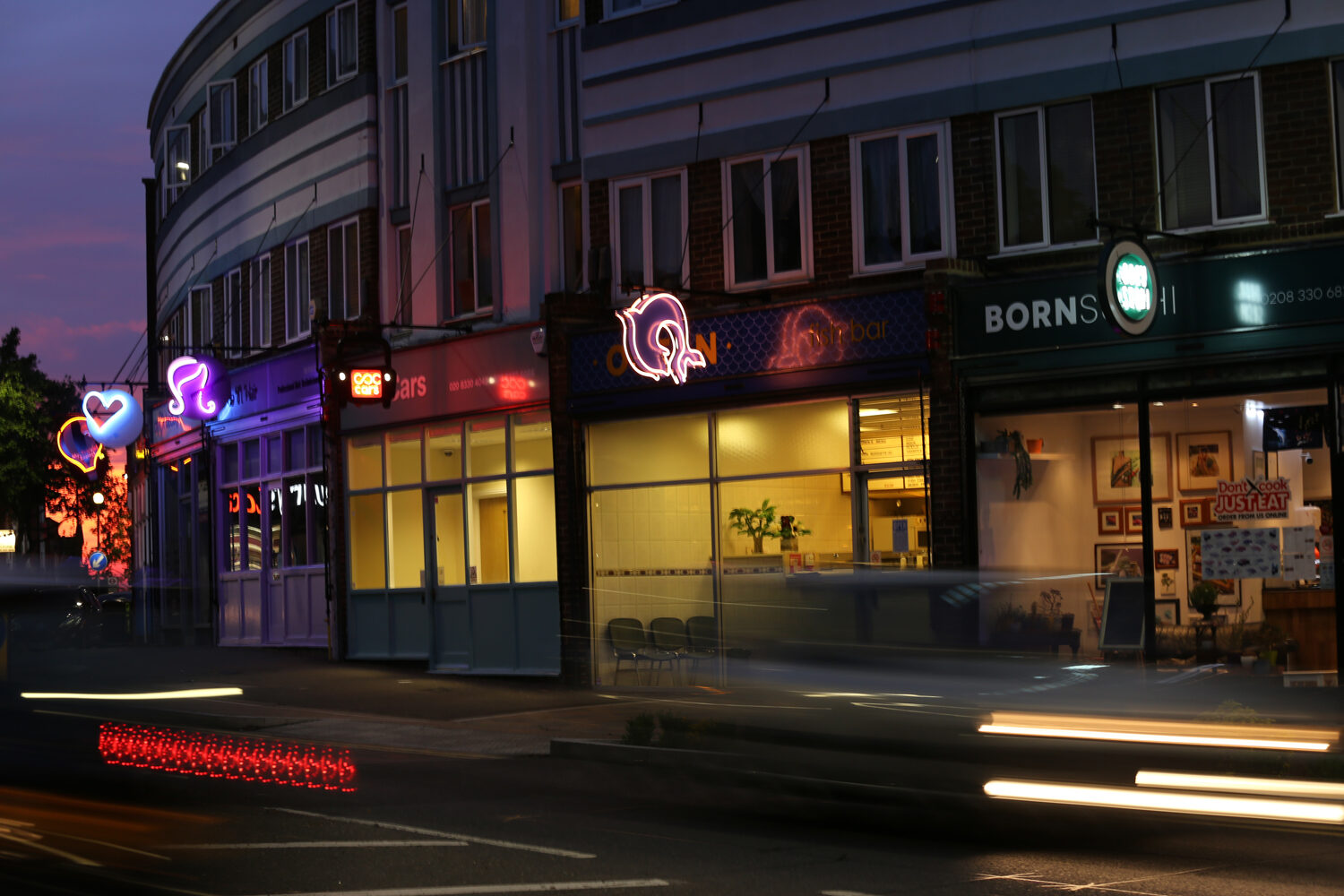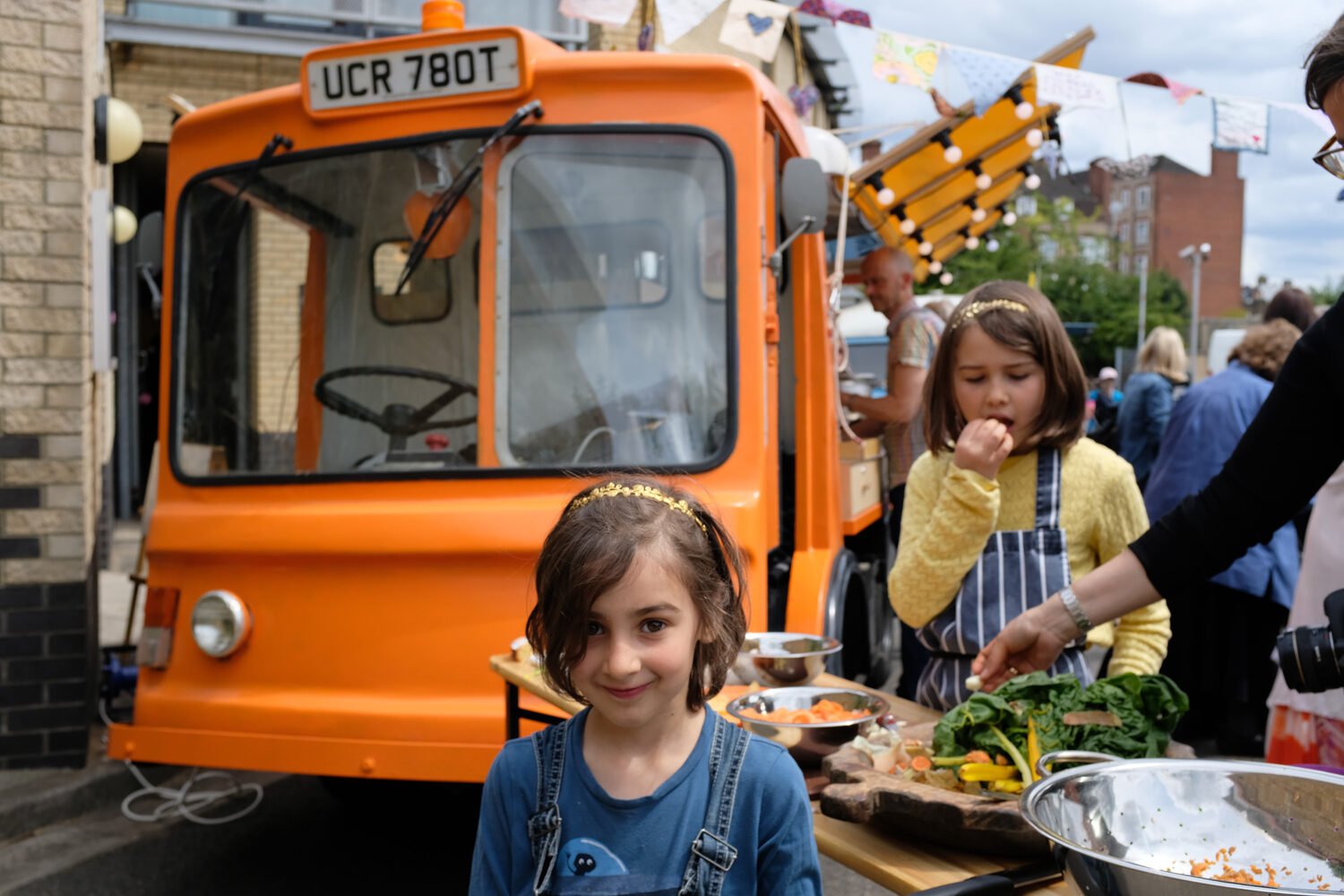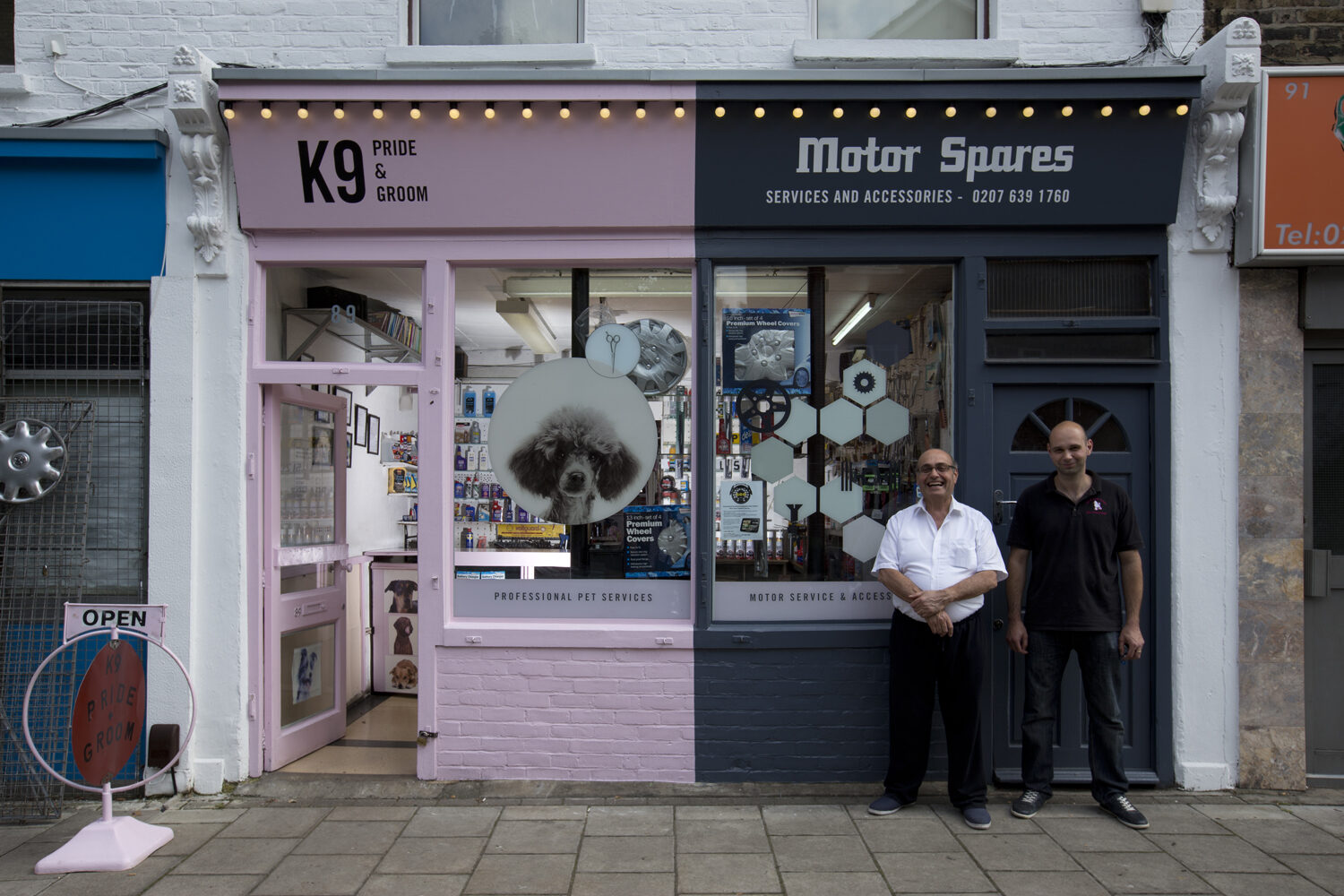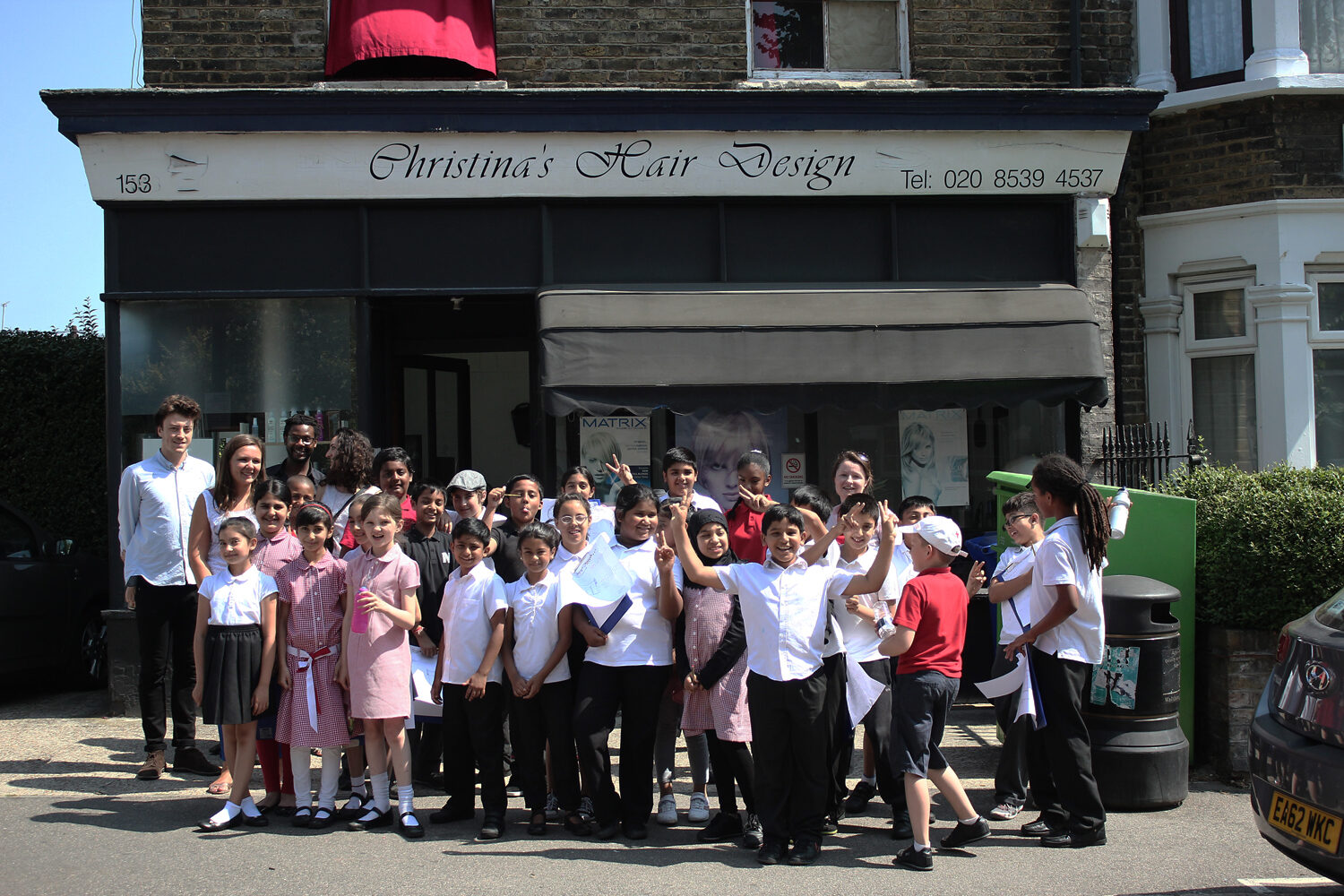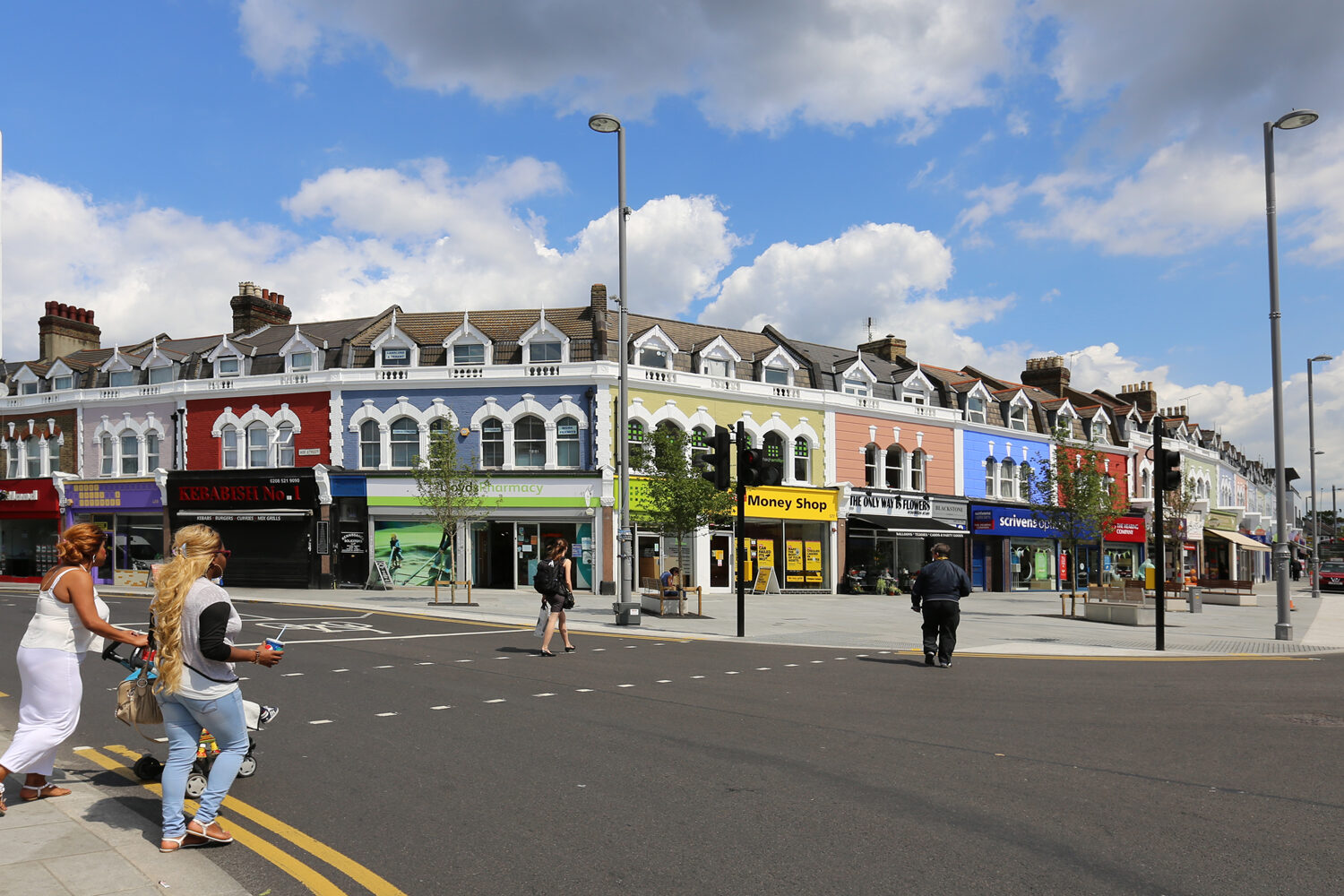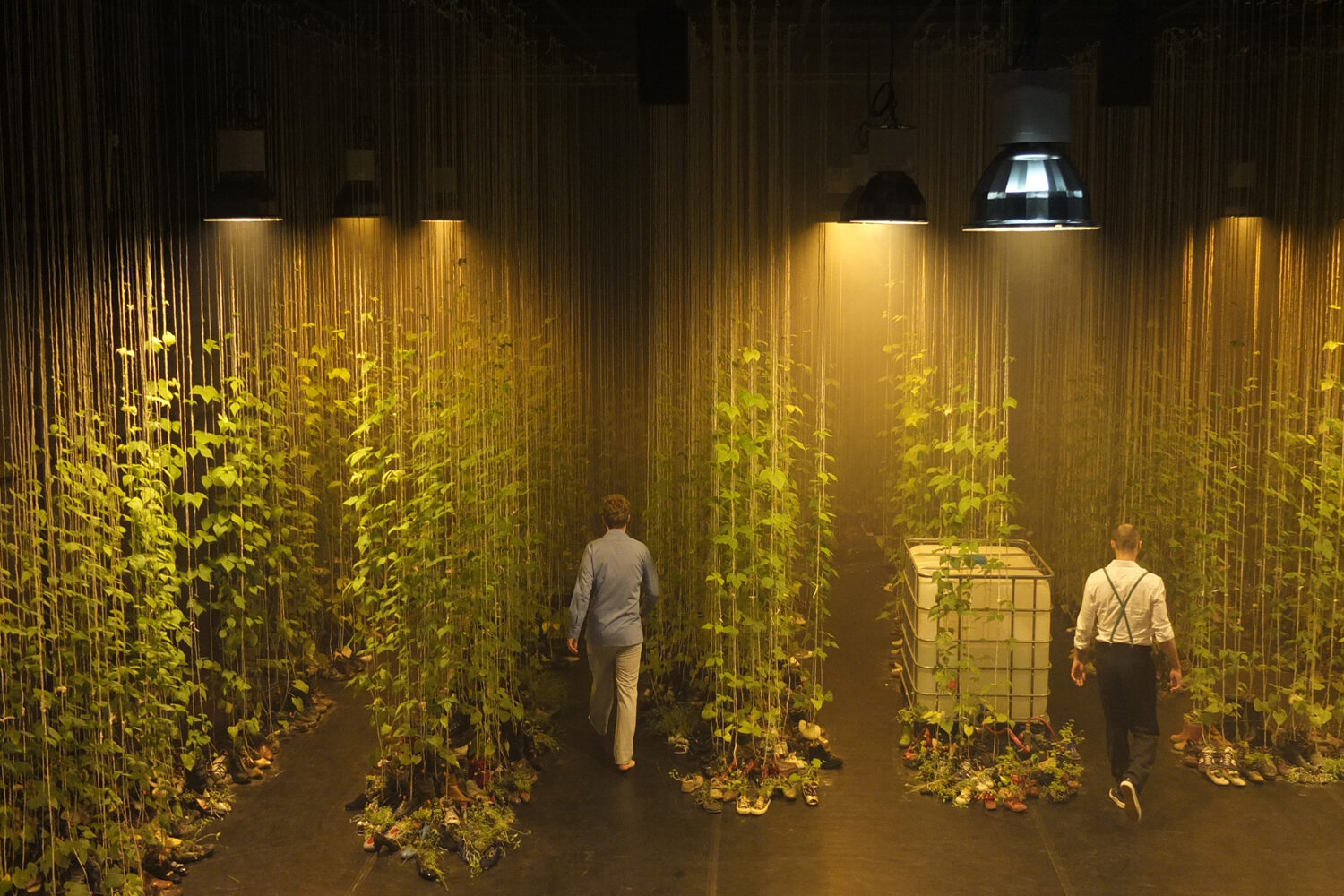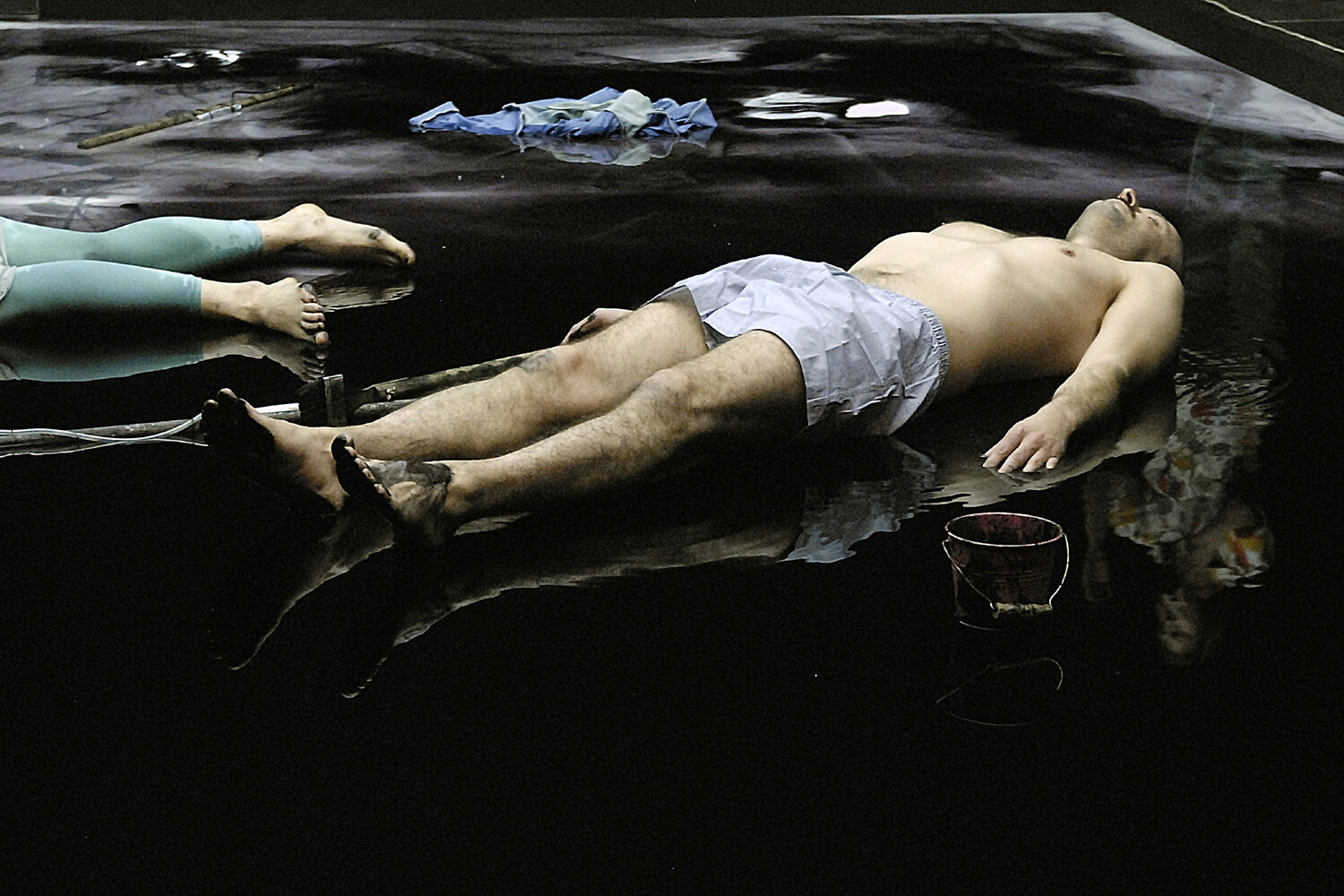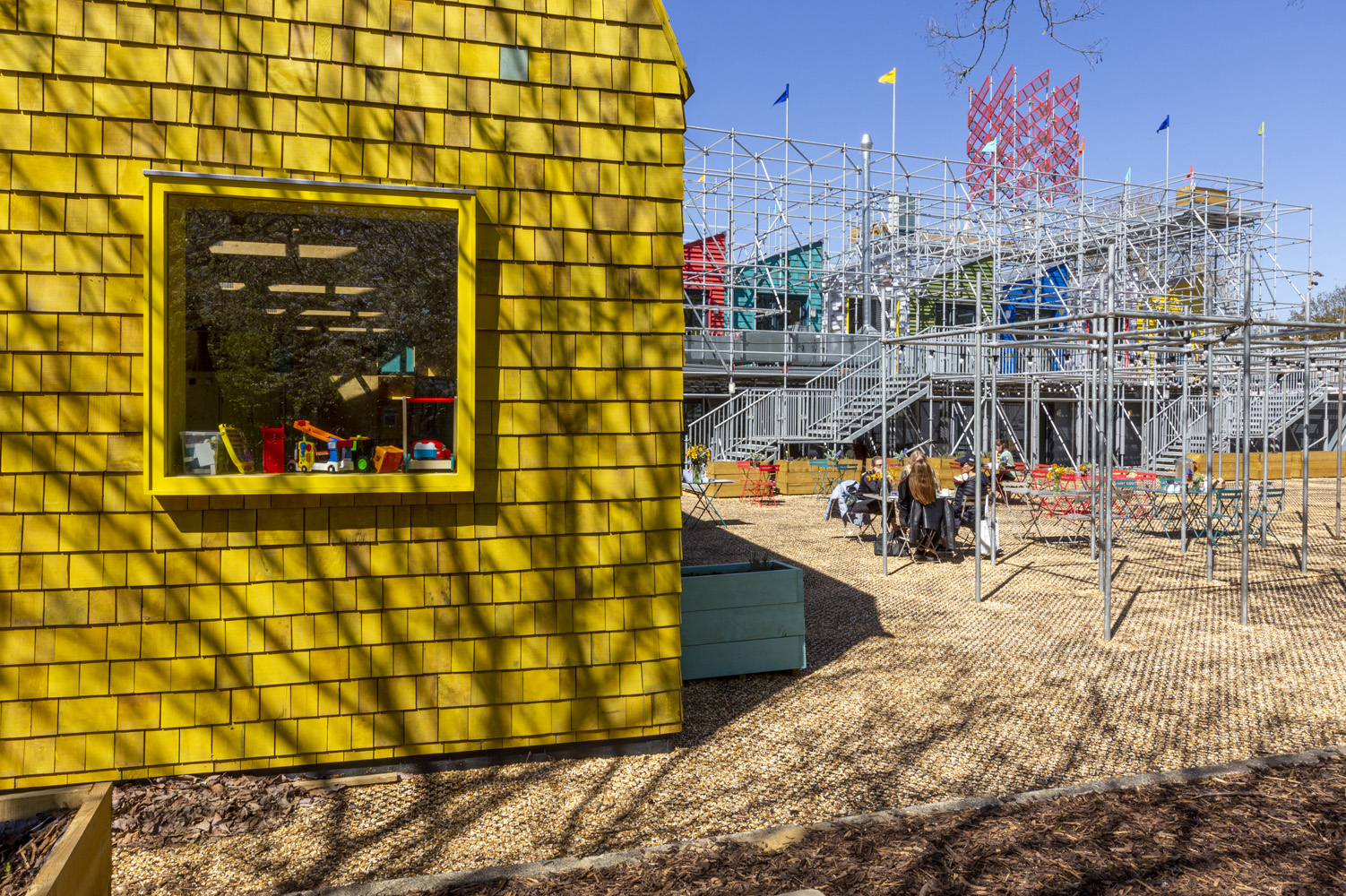
The Ebury Bridge Estate had been identified by Westminster City Council as urgently requiring improvement to homes and the external environment. Working closely with a representative steering group, the City Council first established a right of return for all residents before developing proposals for redevelopment of the estate. Unusually, Westminster committed to delivery of new community facilities in advance of the principal scheme.
JKA were commissioned to work closely with residents to establish the brief. Interviews with key stakeholders, including a local homeless charity and community garden, informed design of an elevated planting deck and scaffold ‘trellis’ which place gardening at the heart of the scheme. The steering group’s brief for an ‘invitation’ into the estate guided design of an illuminated tower at the site’s leading corner, a celebration of the scheme’s civic intent.
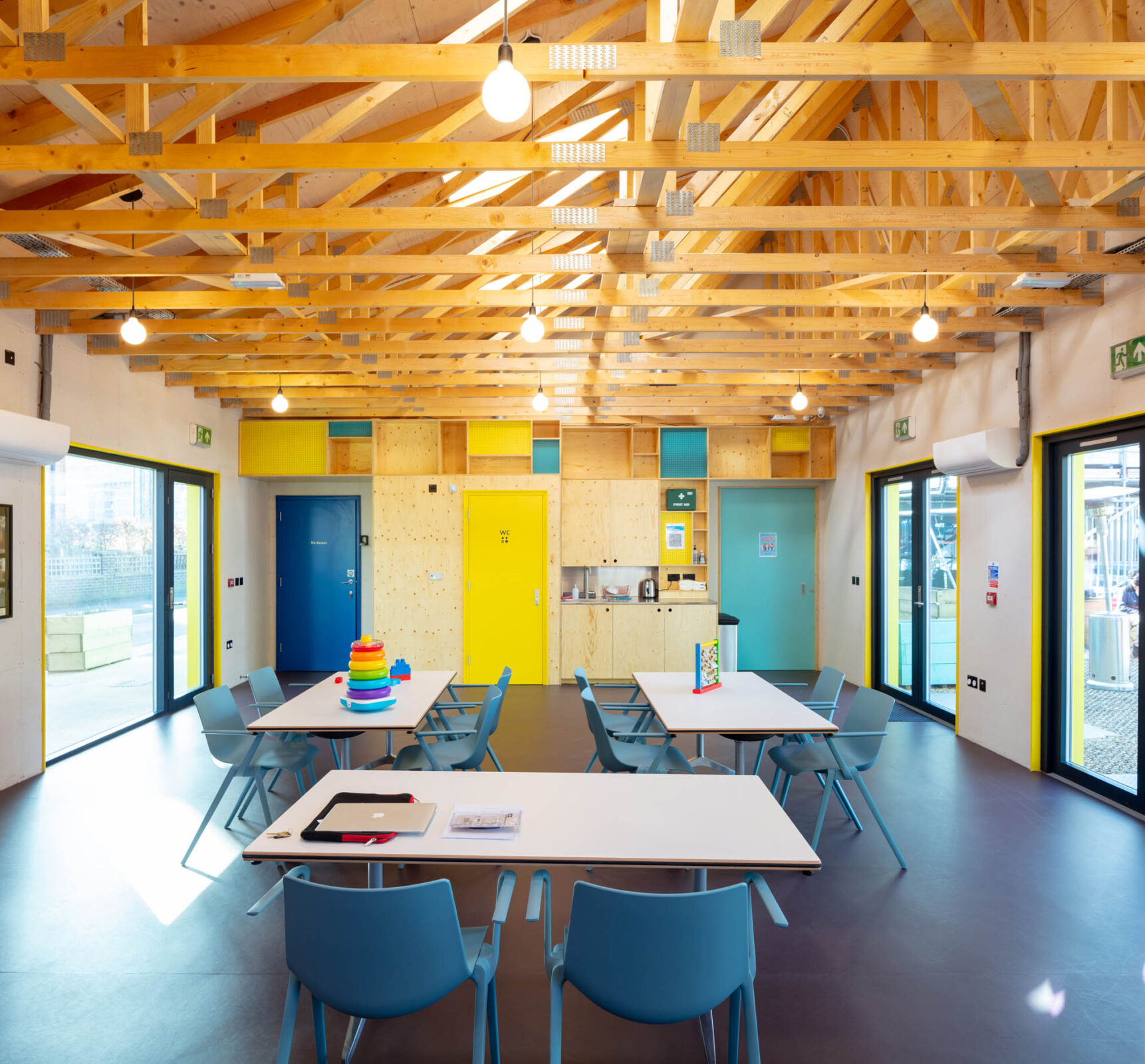
Along the street front, two storeys of workspace units arranged in a colourful timber-clad terrace activate the edge of the Estate in transition. The café and community centre are housed in a distinct single storey volume receding into the depth of the site. Together, the assemblage shelters a courtyard to the rear, which connects to an existing green play space to provide a much-needed social space for the estate and external seating for the café.
Workspaces are sized to provide an affordable foothold for small local businesses, with a variety of micro-shop fronts along the street and larger offices upstairs. The community hall shares a core with the café to allow events and functions to flow between spaces and out into the rear courtyard.
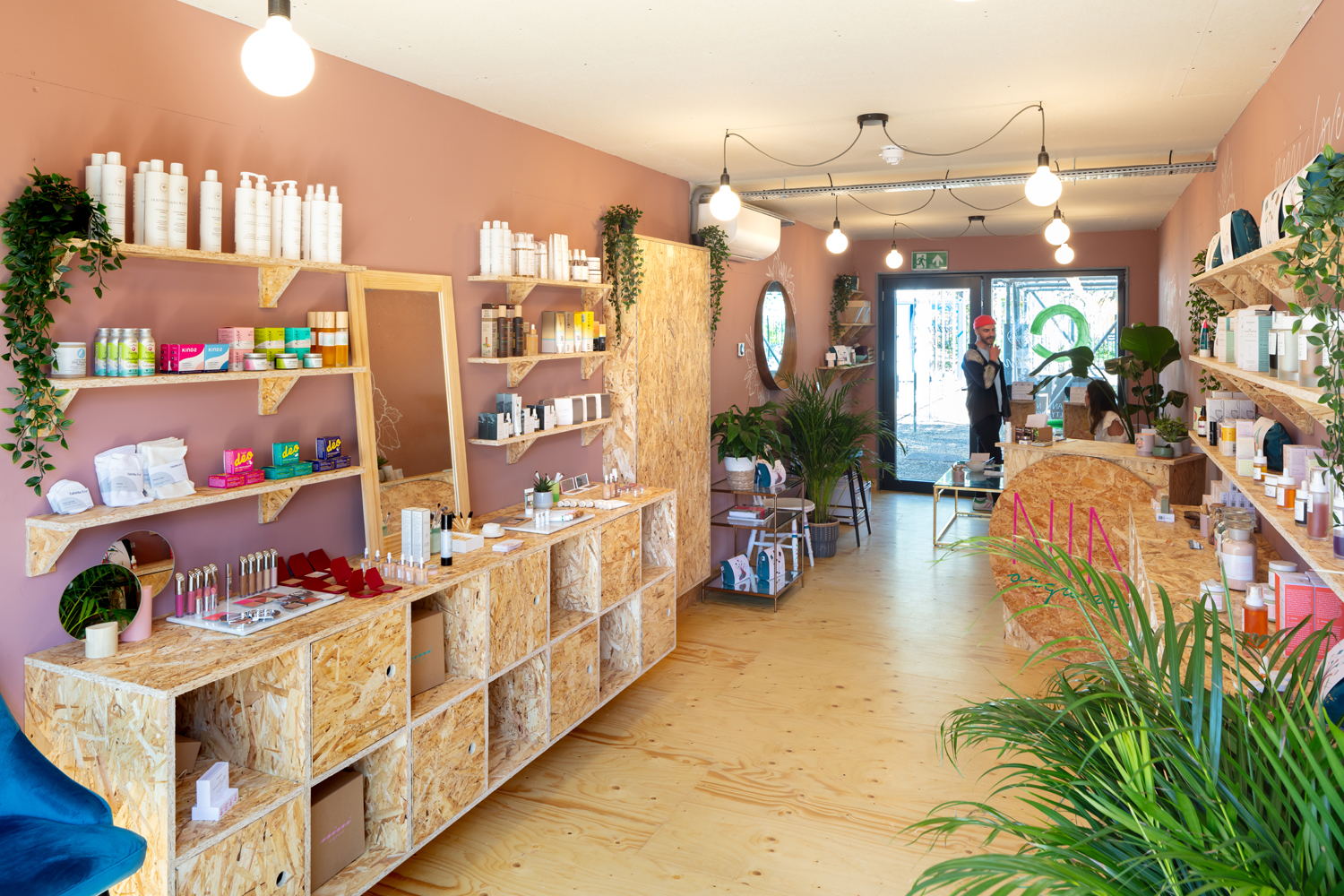
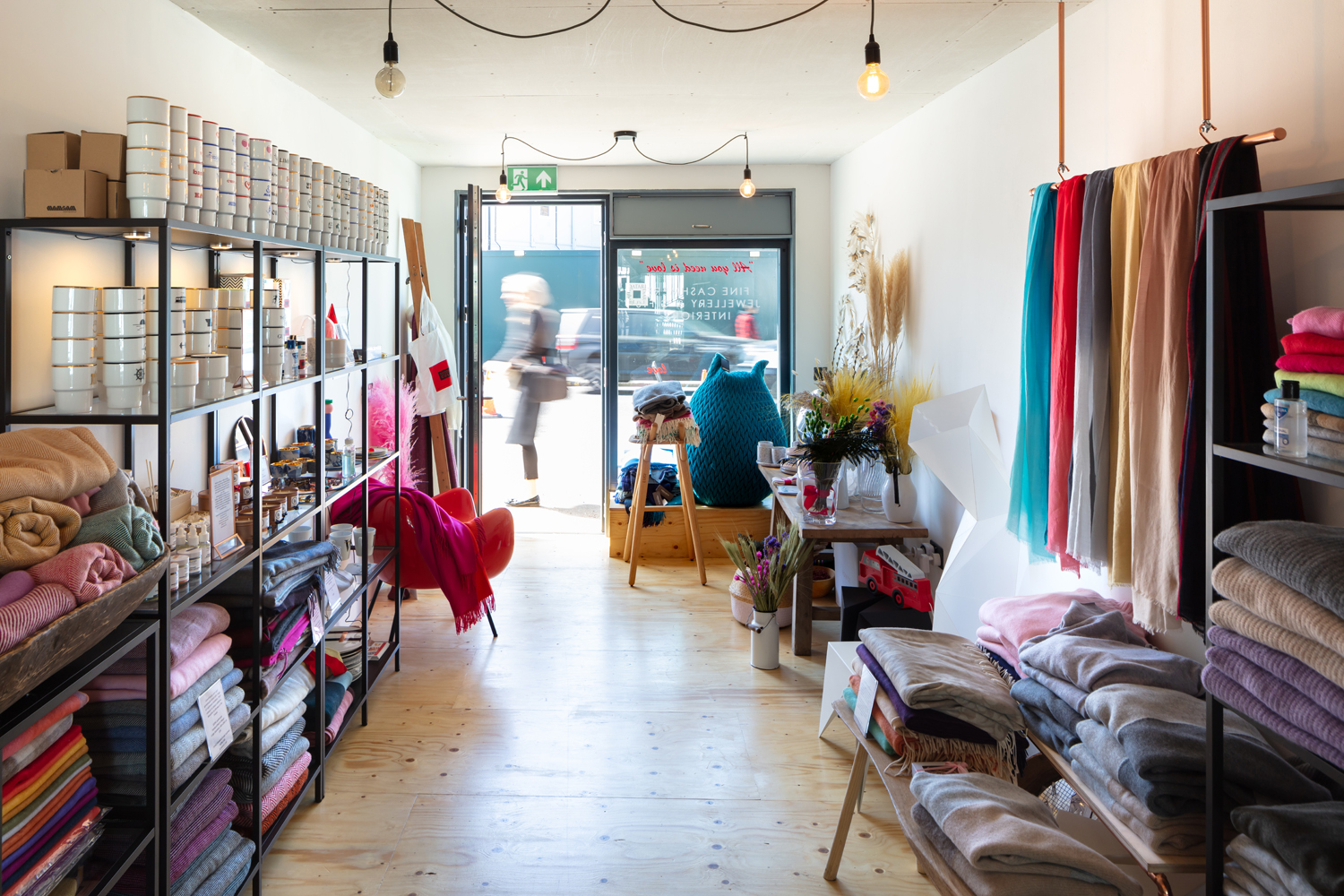
We made use of accessible and widely available timber framing techniques in construction, creatively assembled to allow the structures to be demounted and re-assembled elsewhere once the site comes forward for development in five years’ time. The lightweight structure, including a suspended timber ground floor, requires minimal foundations, reducing the embodied energy of the scheme.
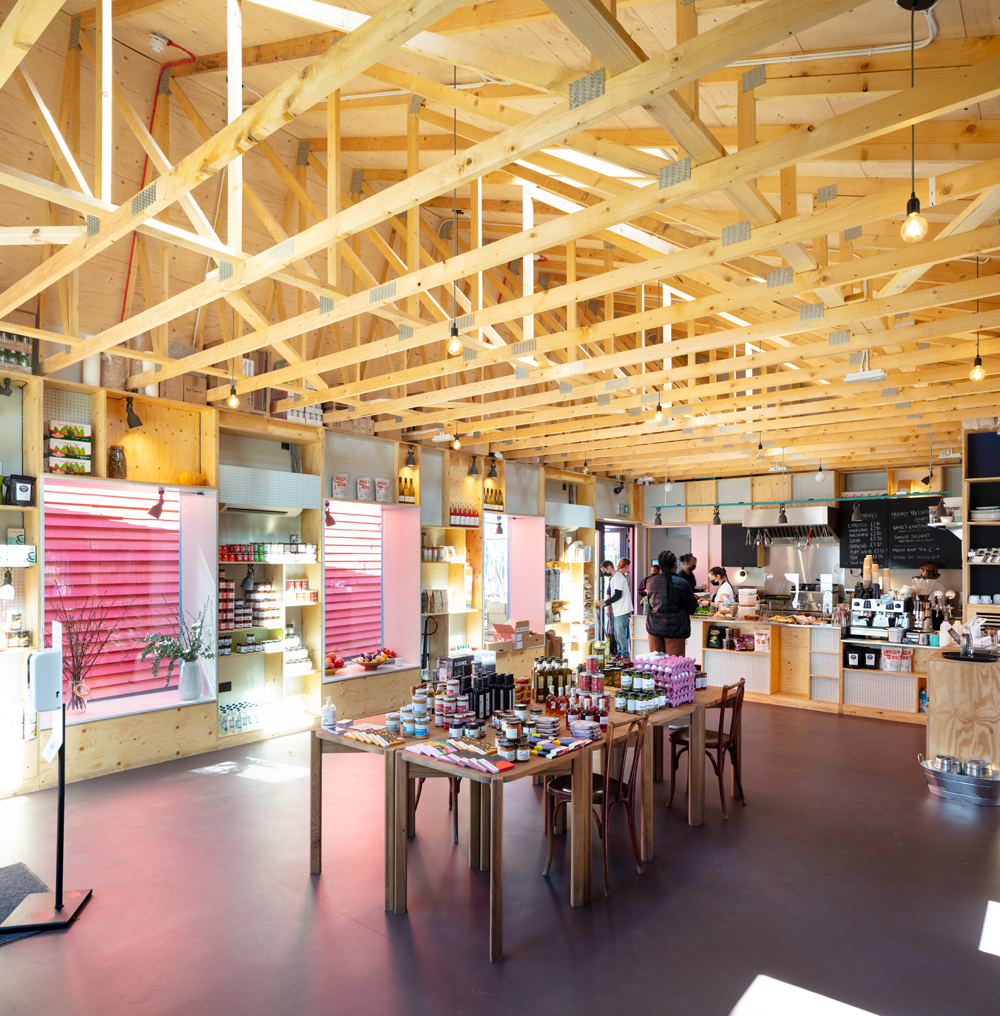
Our care in establishing the spatial brief and local connections during the design process helped Ebury Edge to reach full occupation just weeks after opening, and secured ‘Fat Maceys’ as anchor tenant for the café, an organisation who provide training for homeless people at the core of their business model.
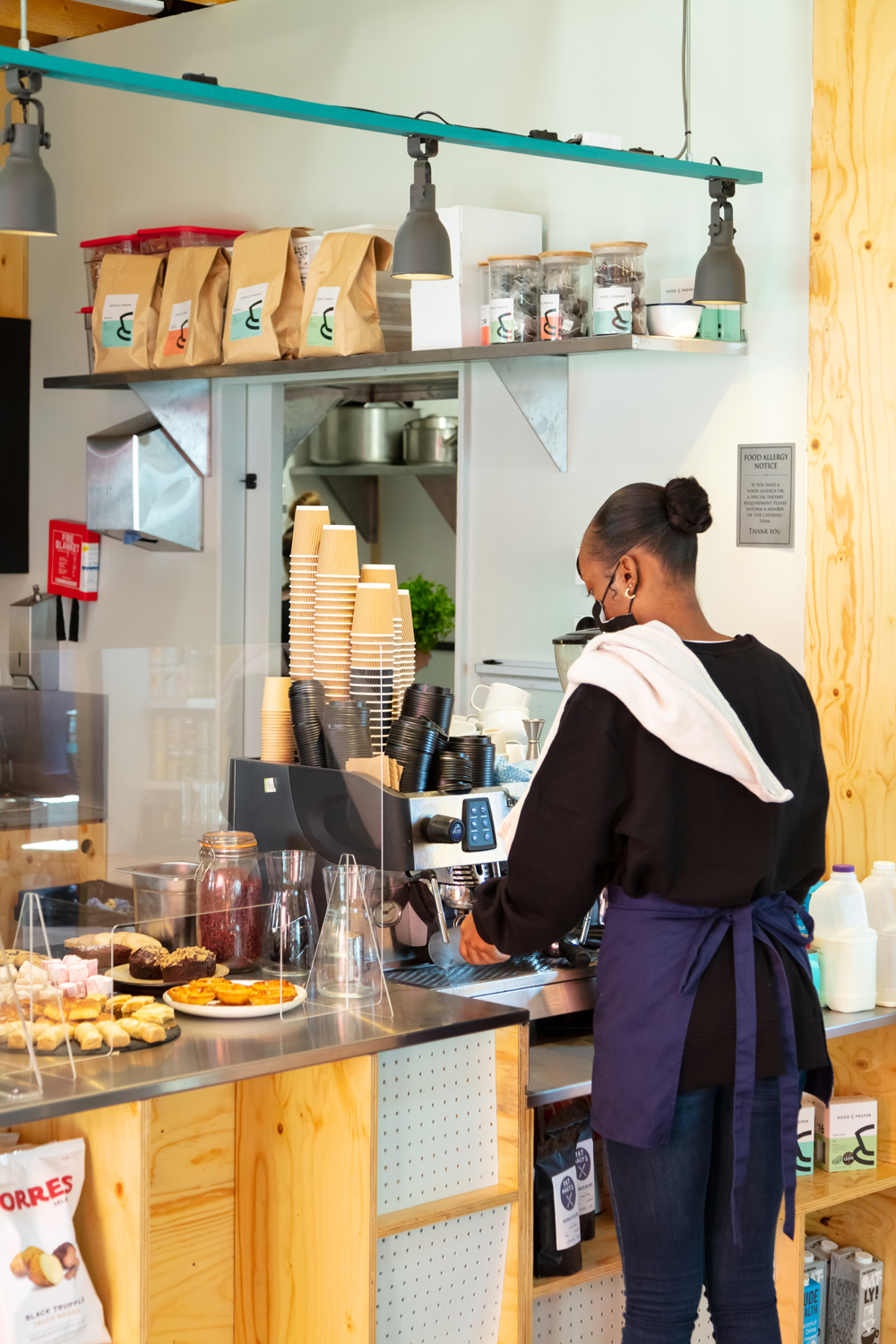
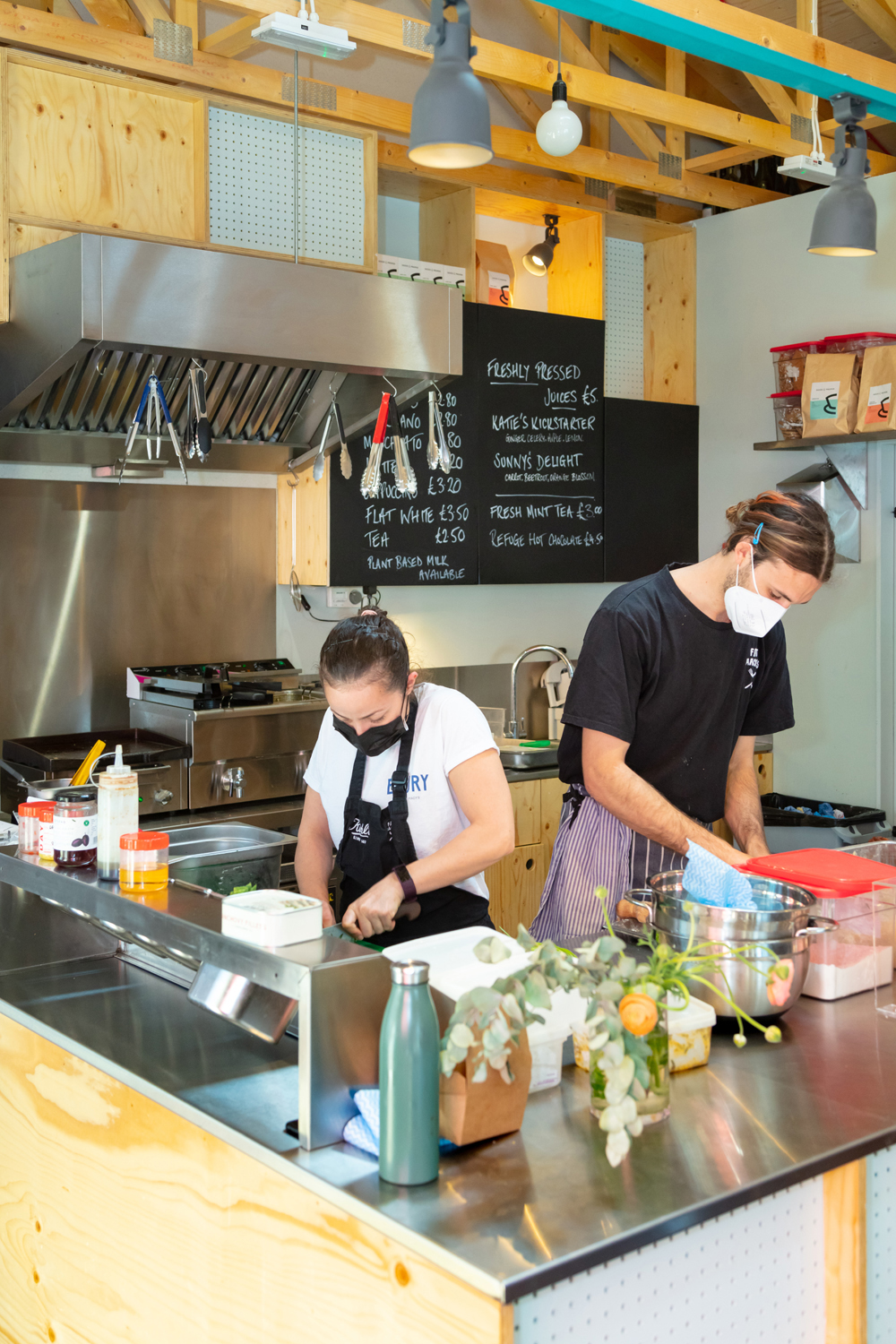
Ebury Edge exemplifies a new approach that embraces the creative potential of the regeneration process itself for positive change. By creating community amenities in advance of long-term redevelopment, the scheme is creating continuity for residents, enabling local businesses, and will help to ensure that the long-term redevelopment is well rooted in its context. The design and consultation approach have resulted in a scheme with a striking visual character that is unique to Ebury, and reflects residents’ wishes to invite communities old and new to take their place on the renewed estate.
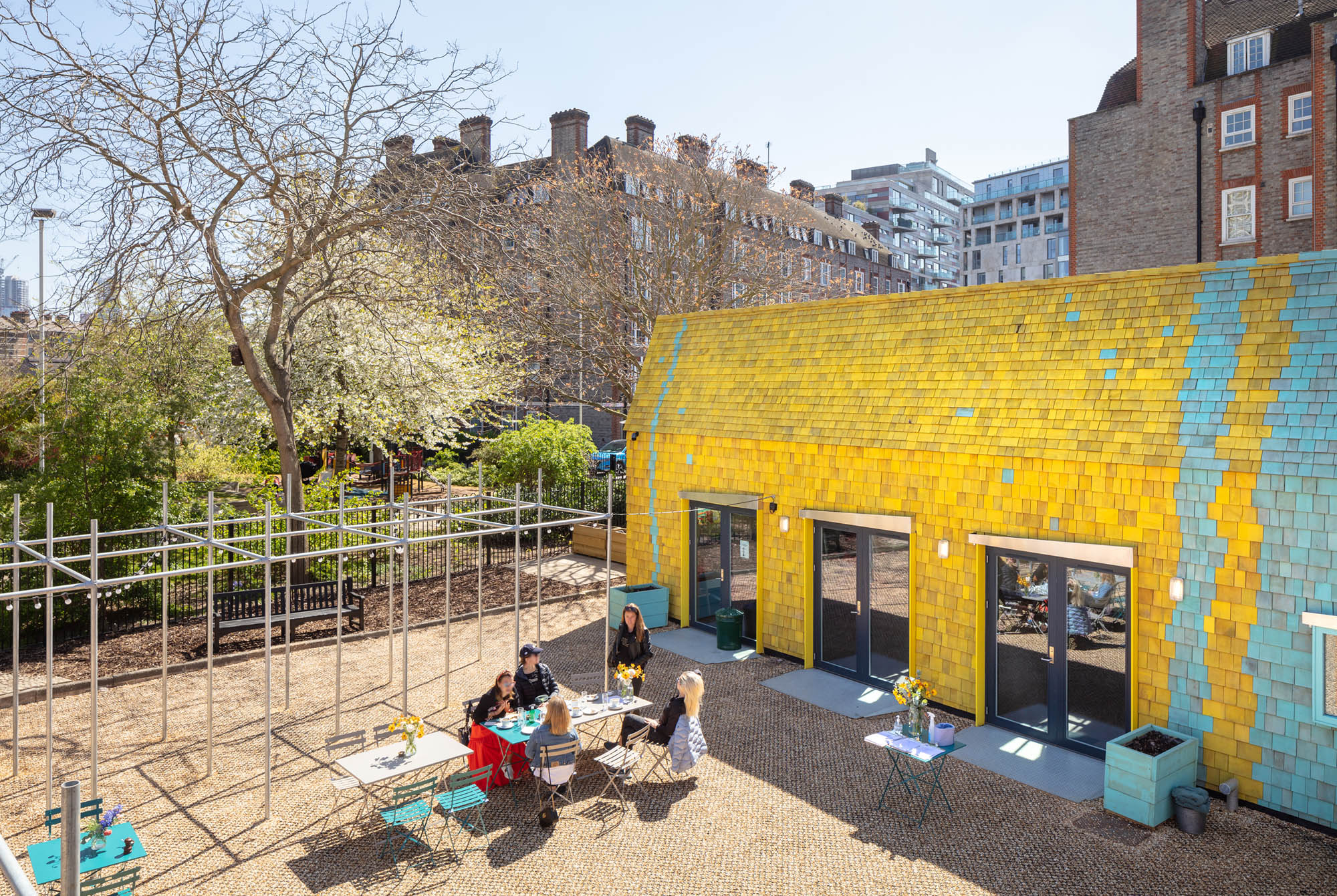
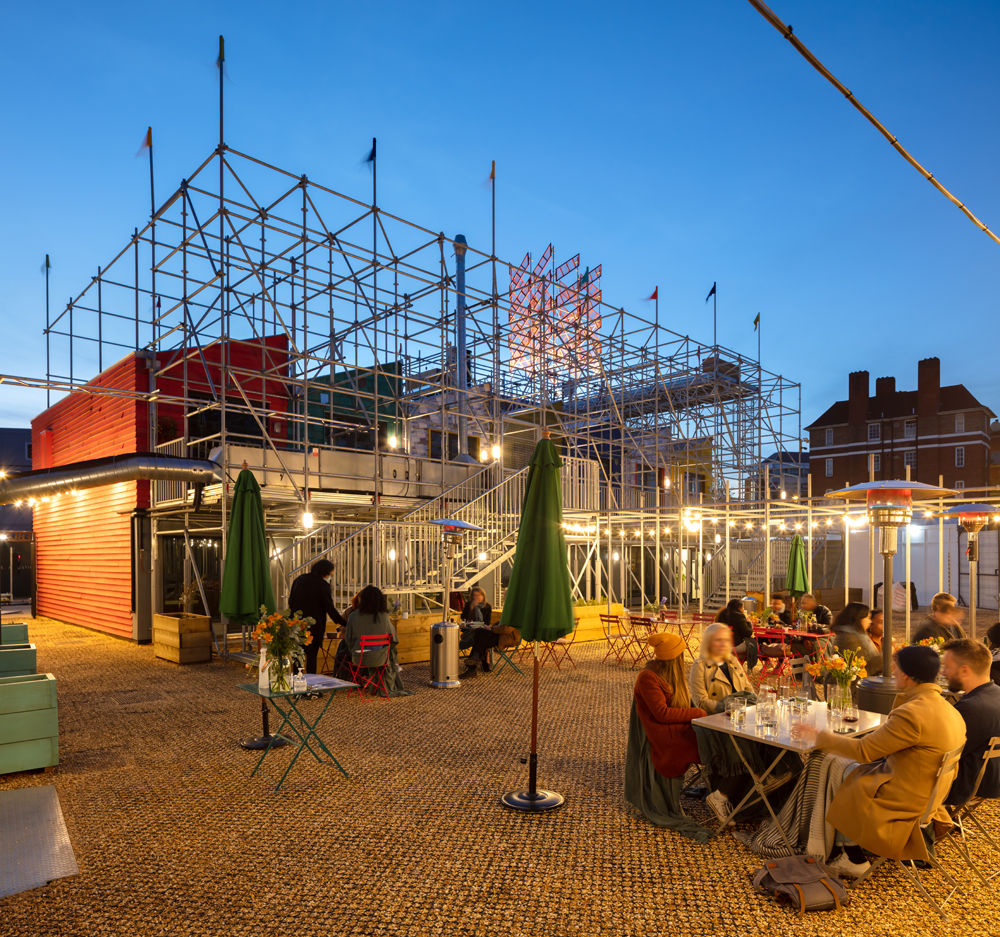
Press
- 2022 – Arch Daily – Ebury Edge Community Center / Jan Kattein Architects
- 2022 – RIBA J – Temporary community scheme adds a colourful edge
- 2022 – Metalocus Sensitive and ephemeral regeneration. Ebury Edge by Jan Kattein Architects
- 2020 – Architects Journal – Ebury Bridge Estate
- 2020 – Architizer – Ebury Edge
